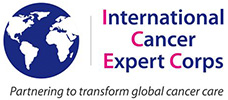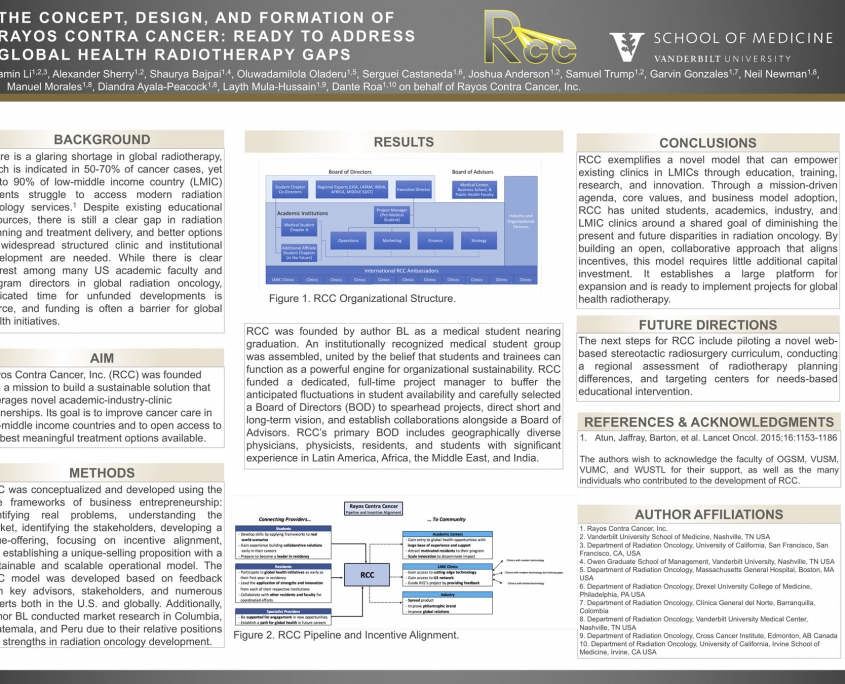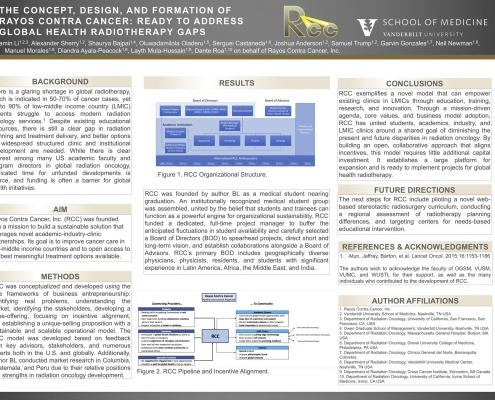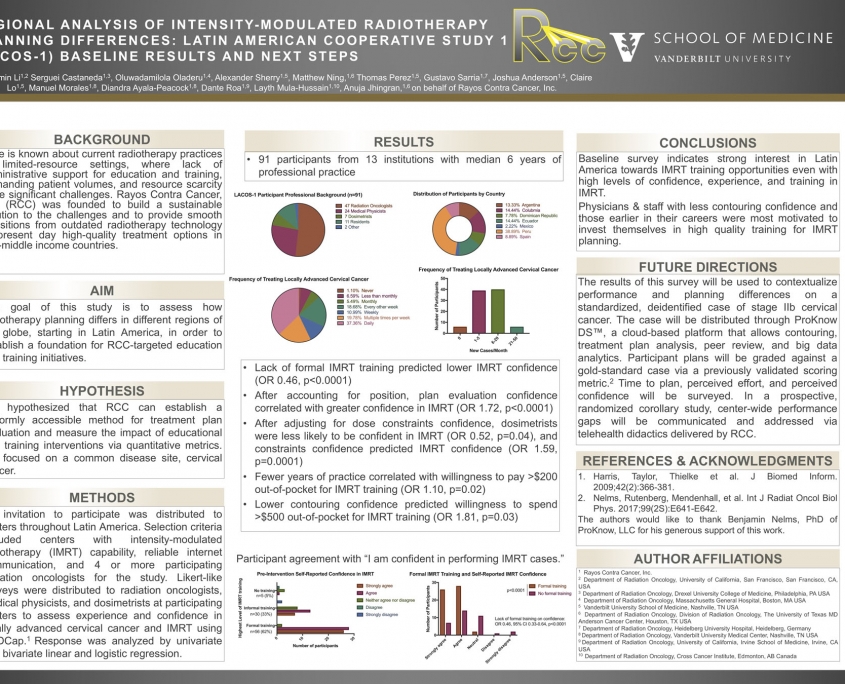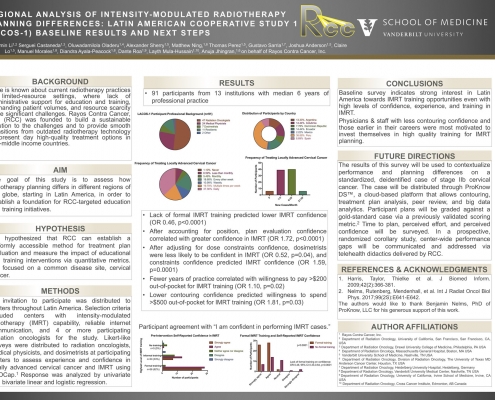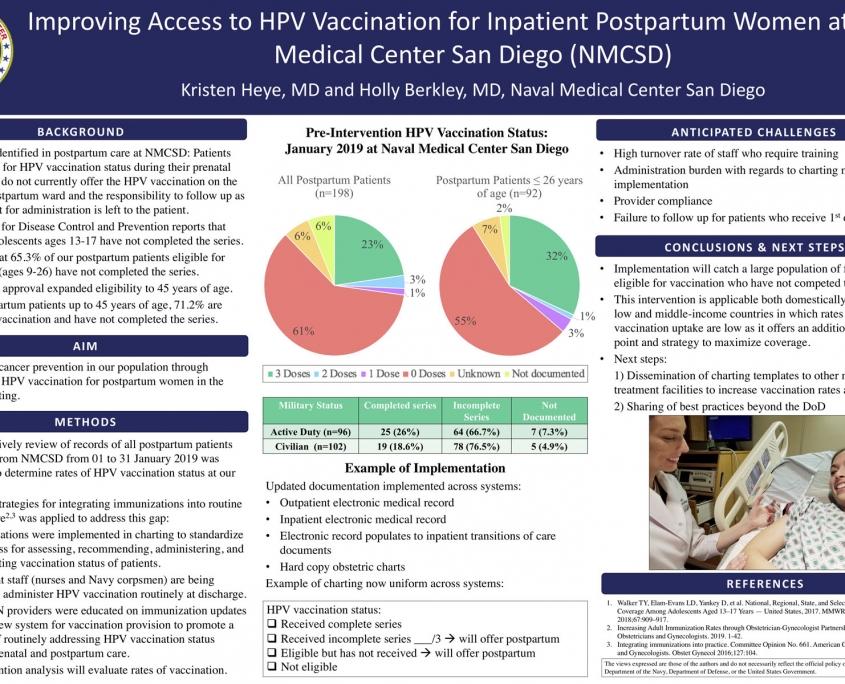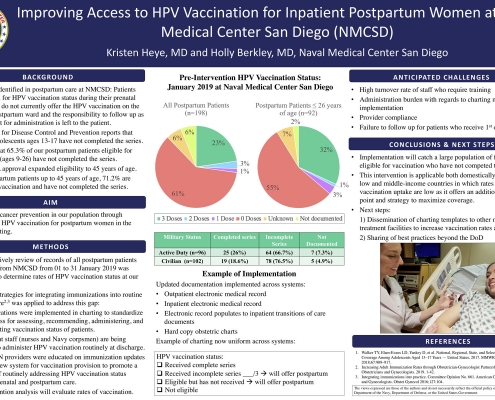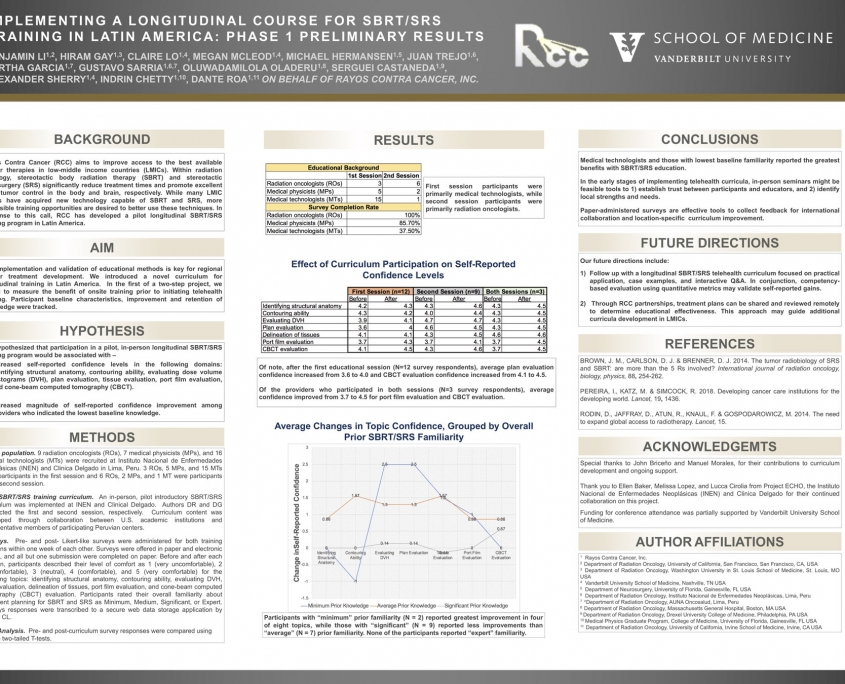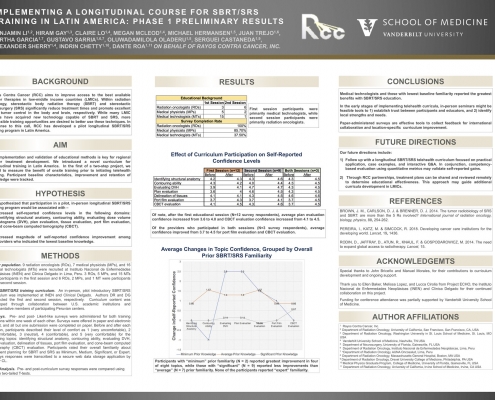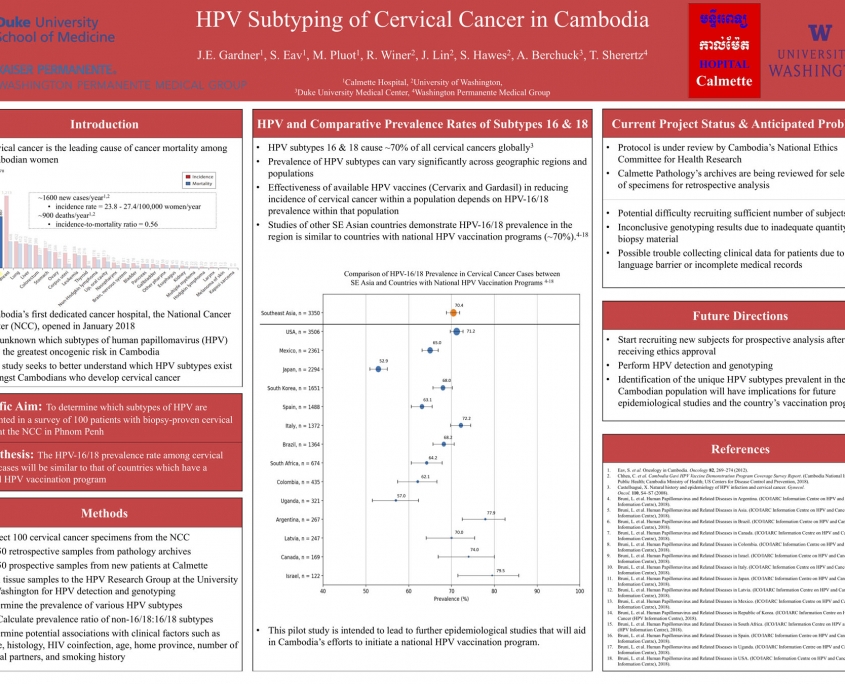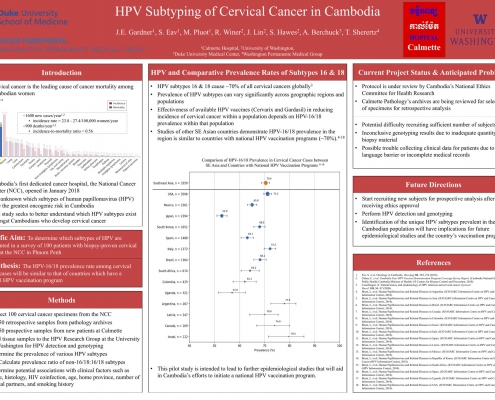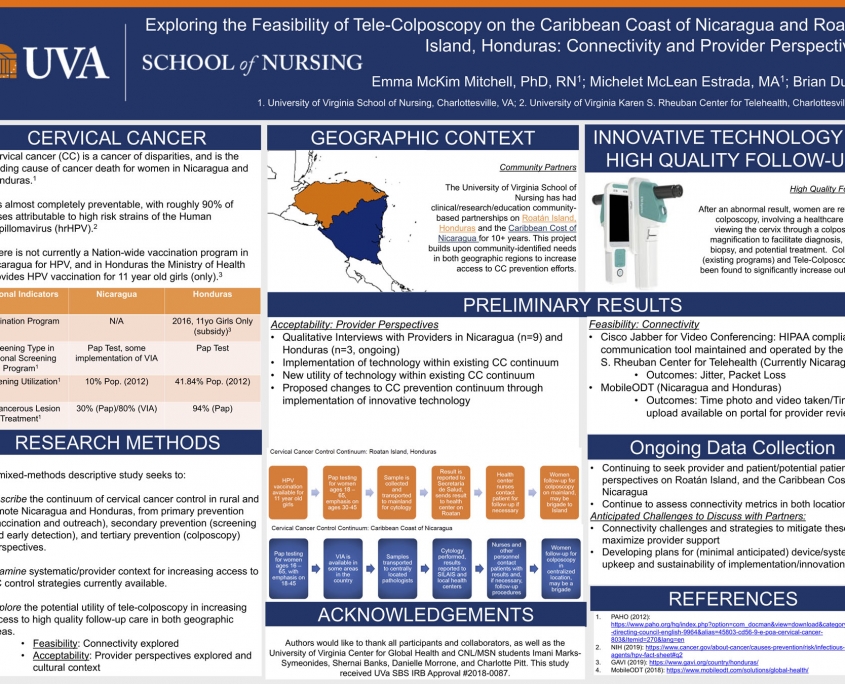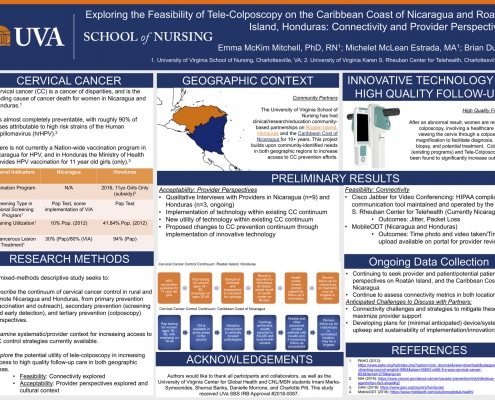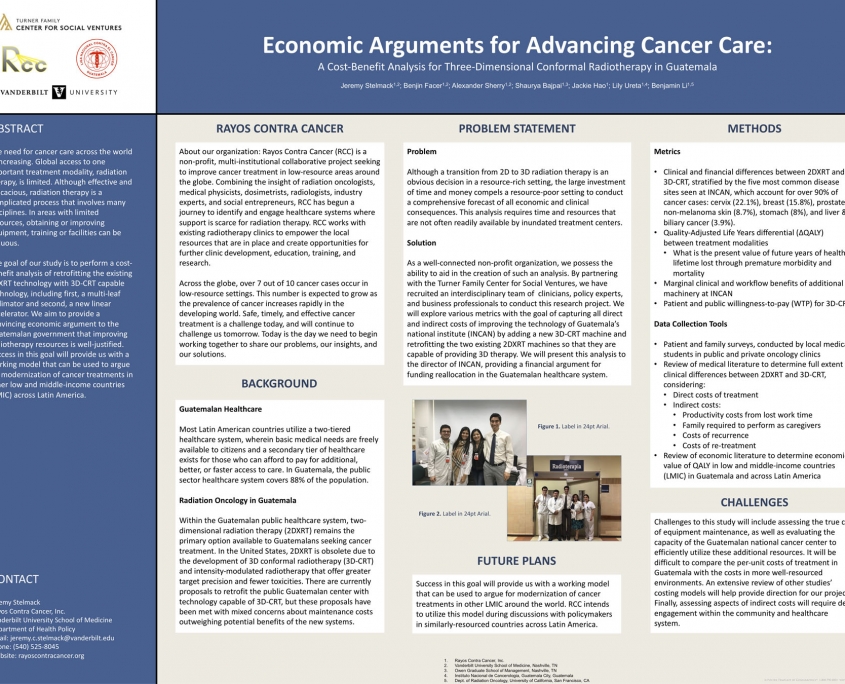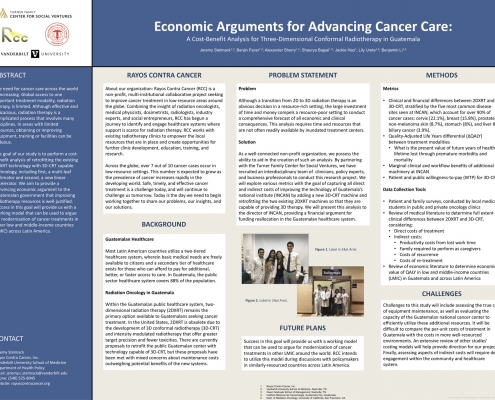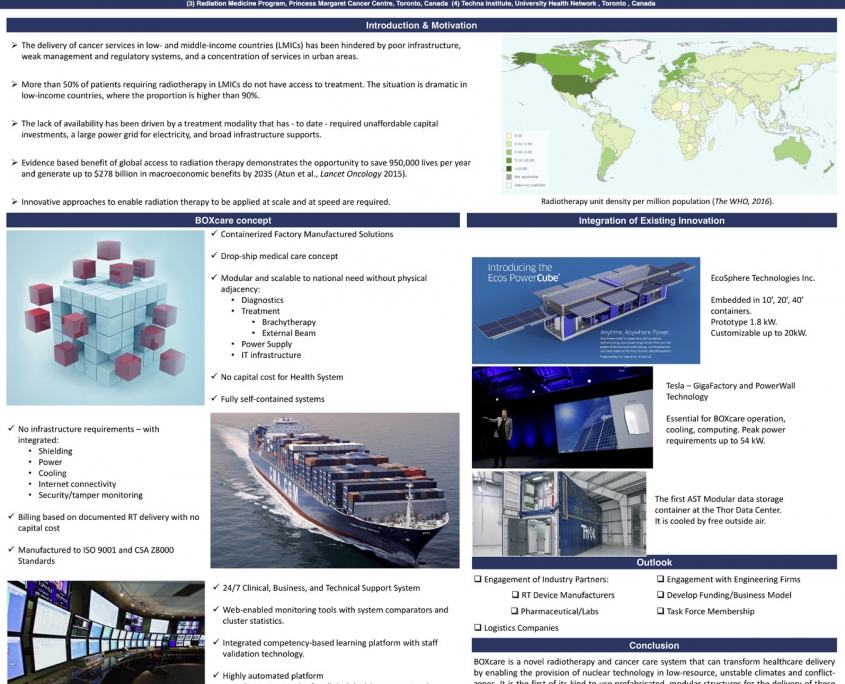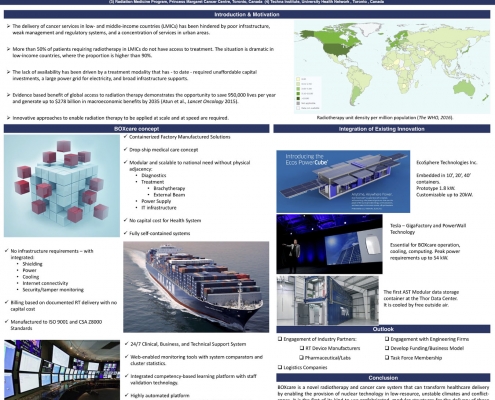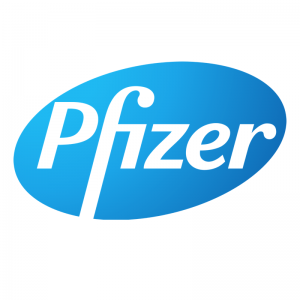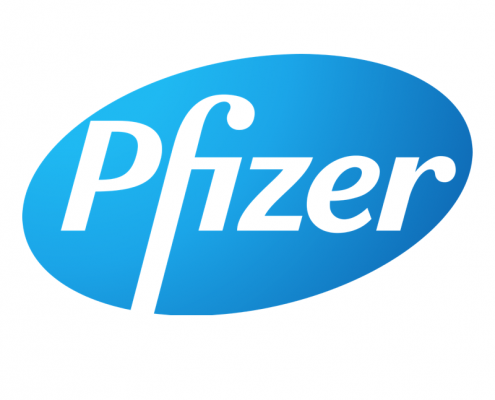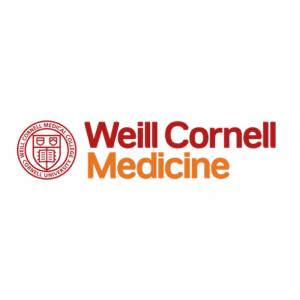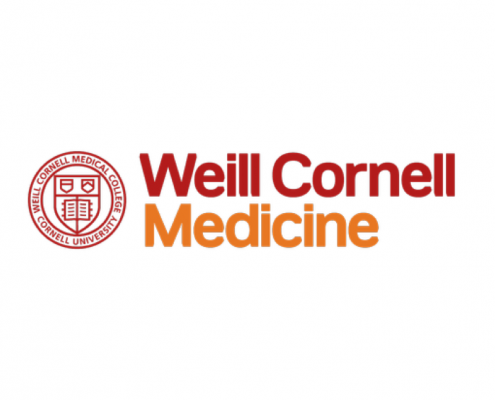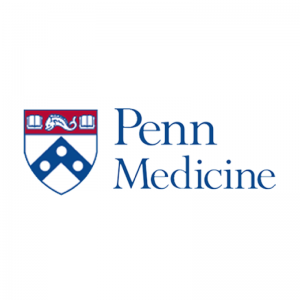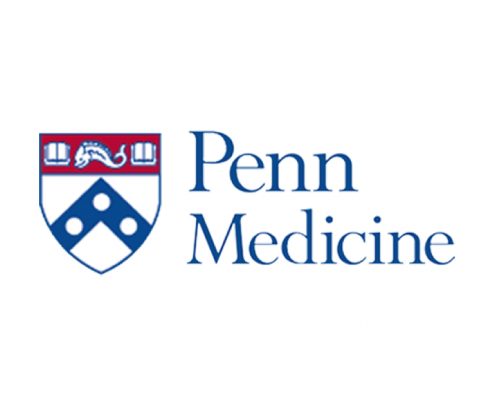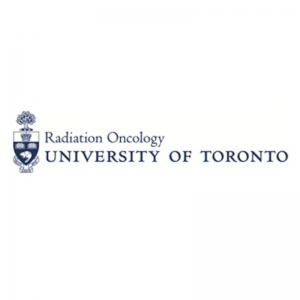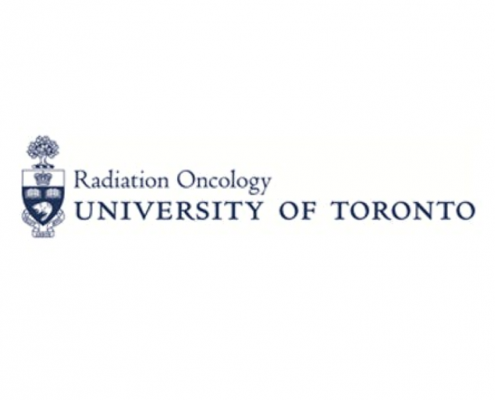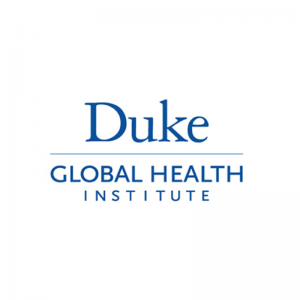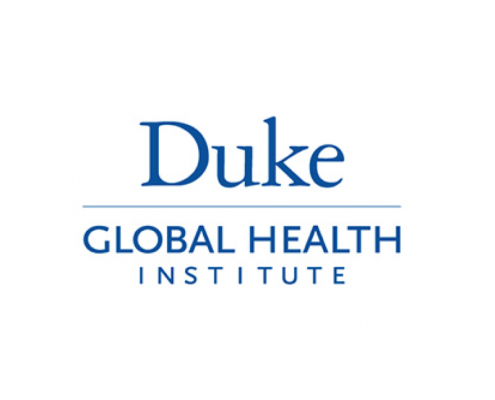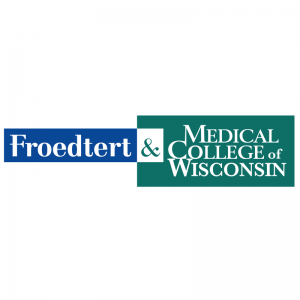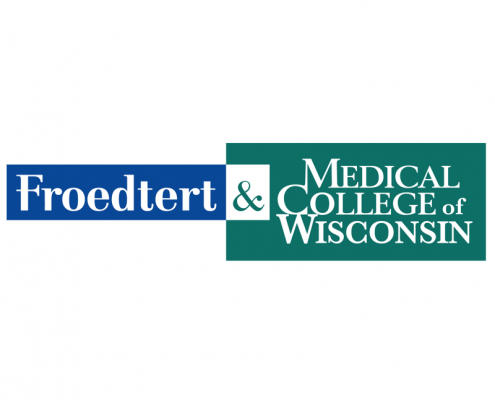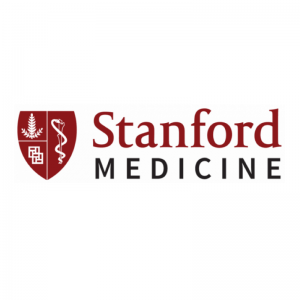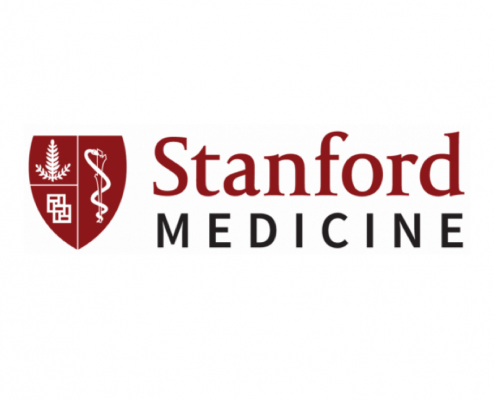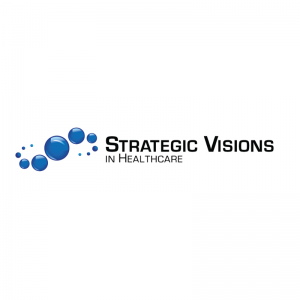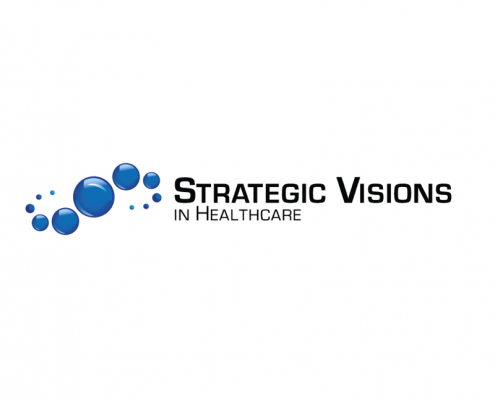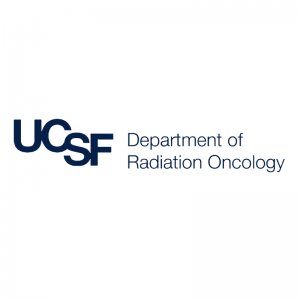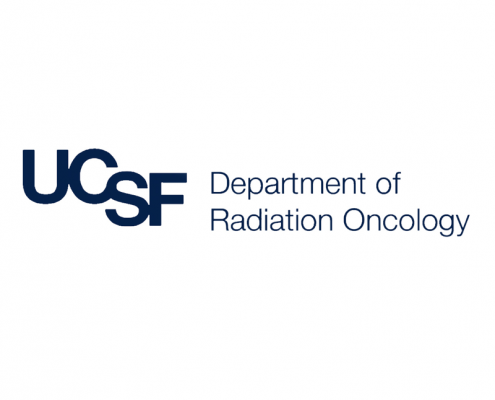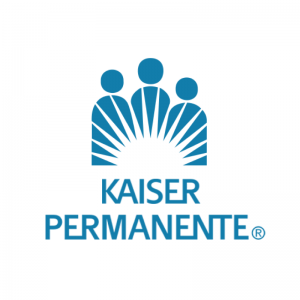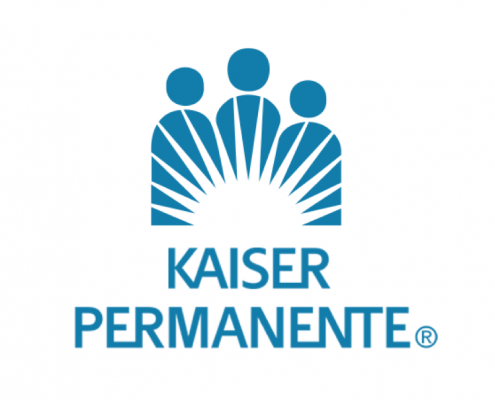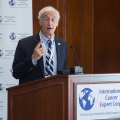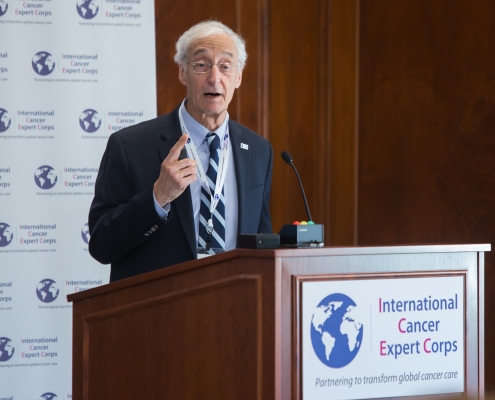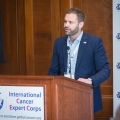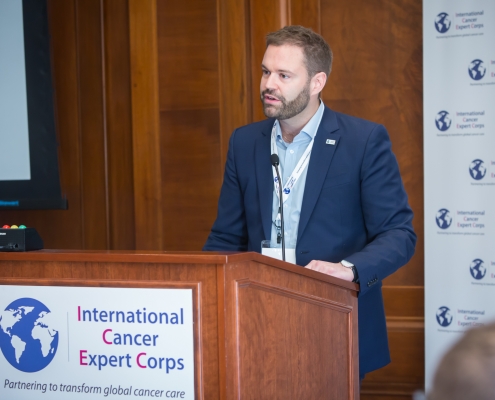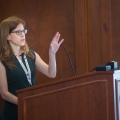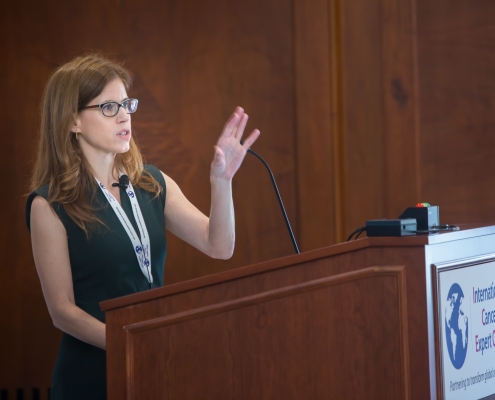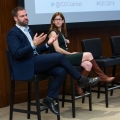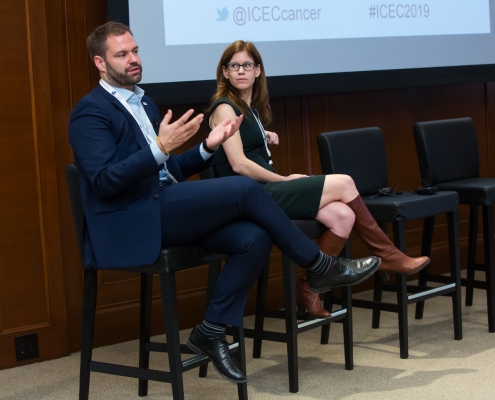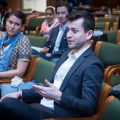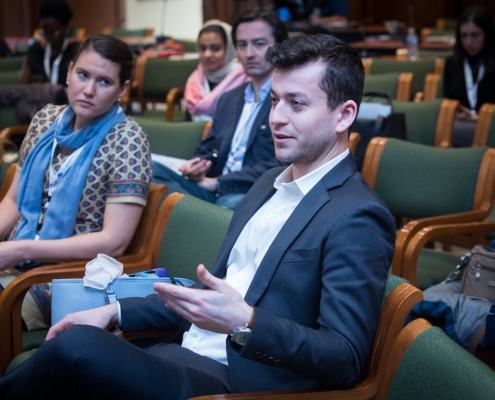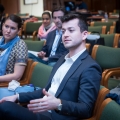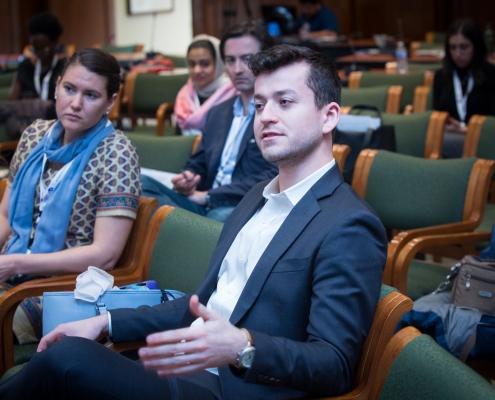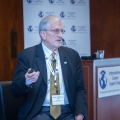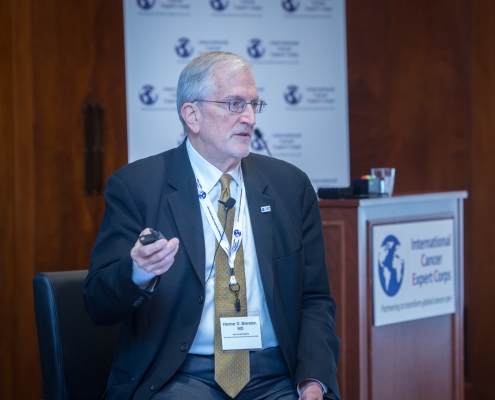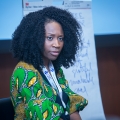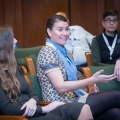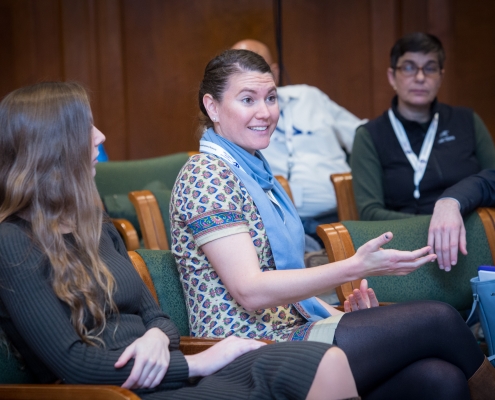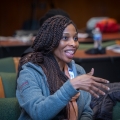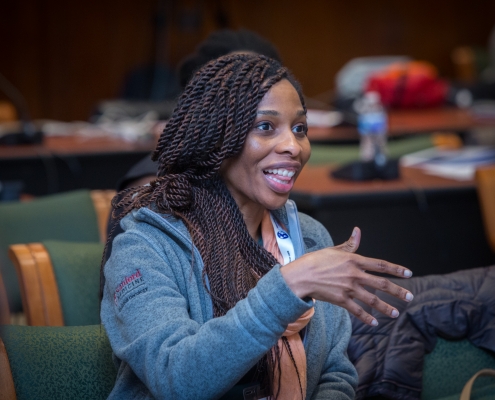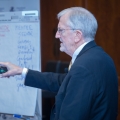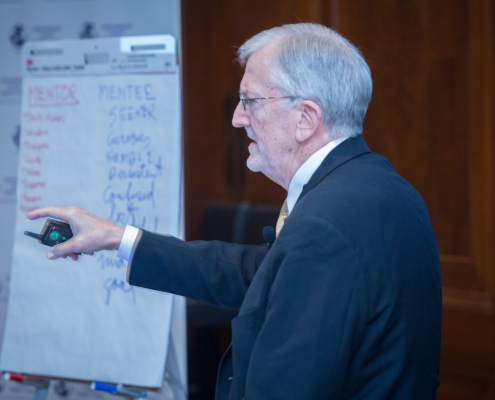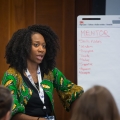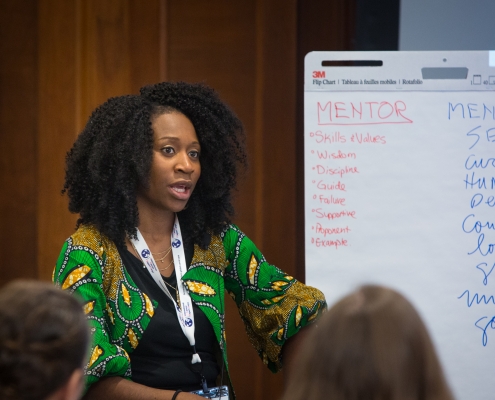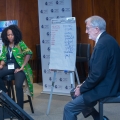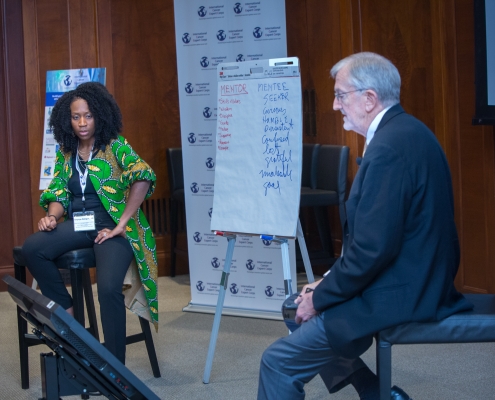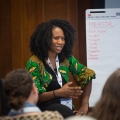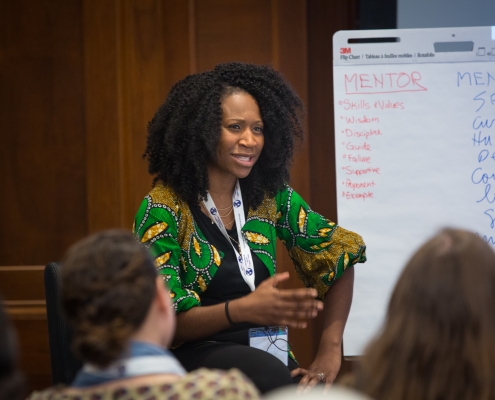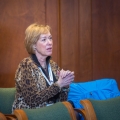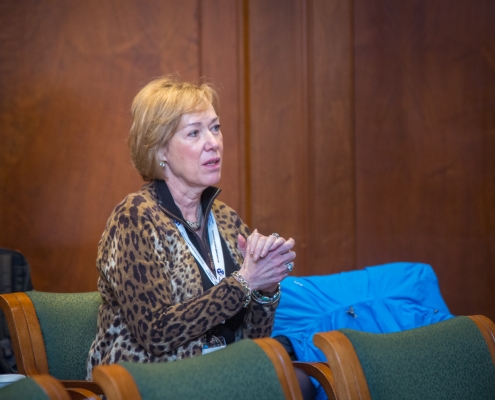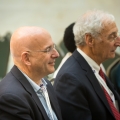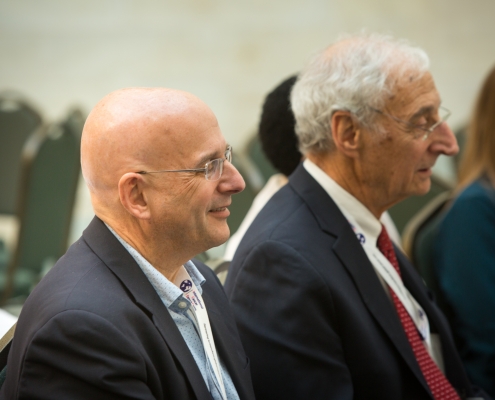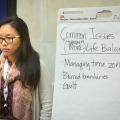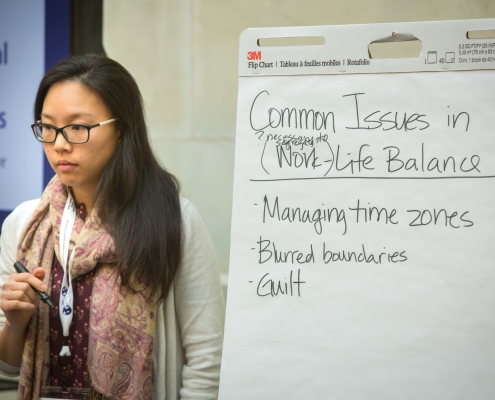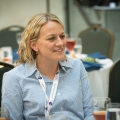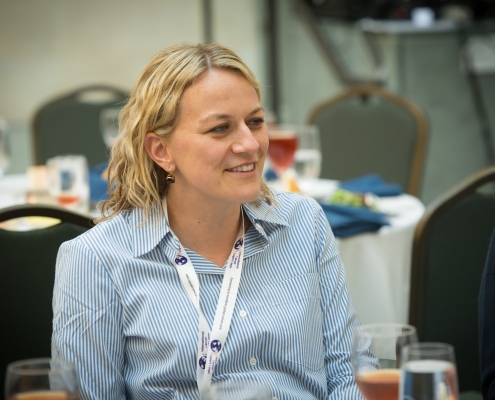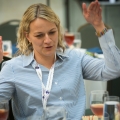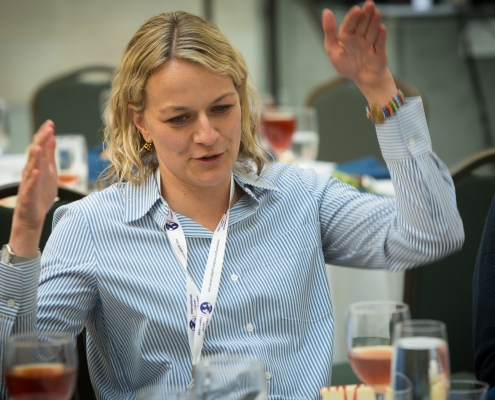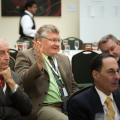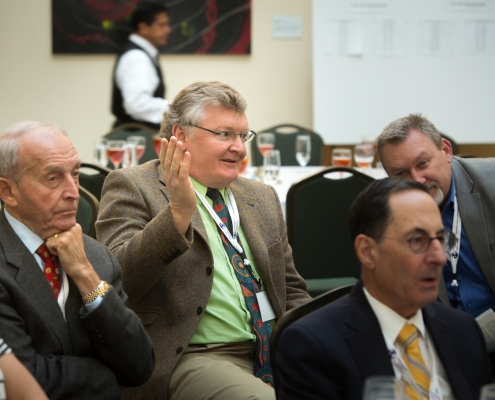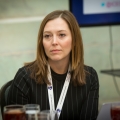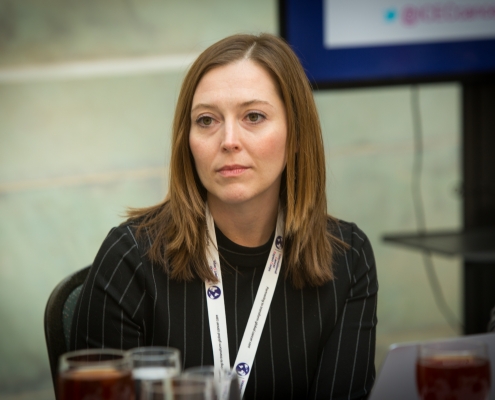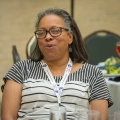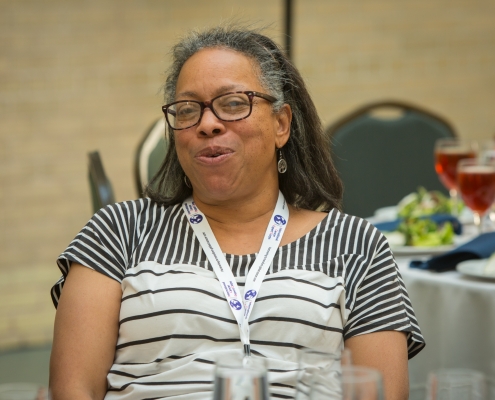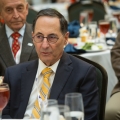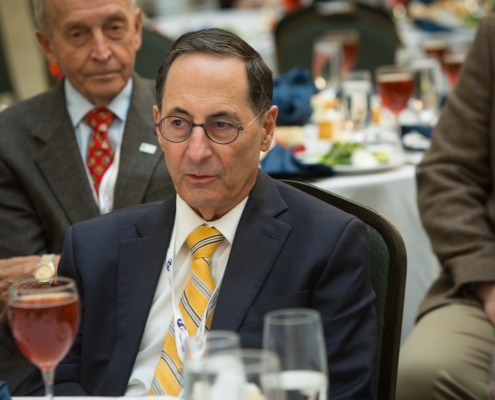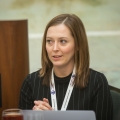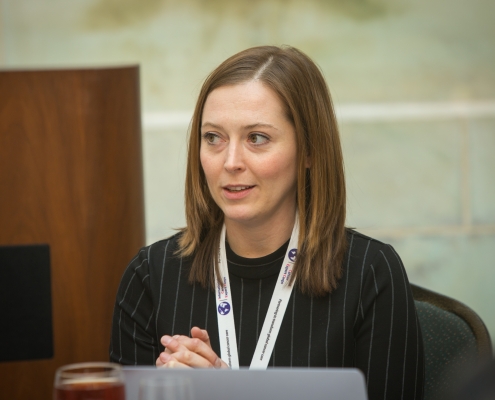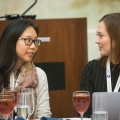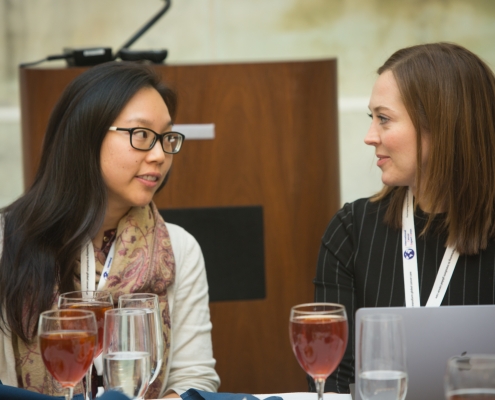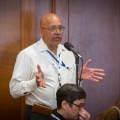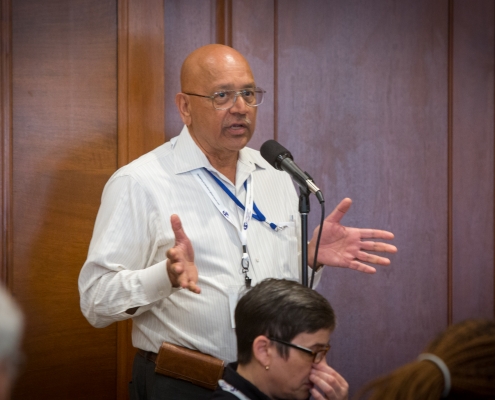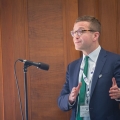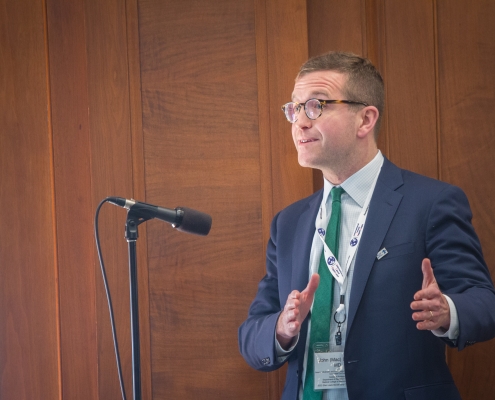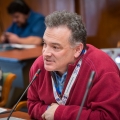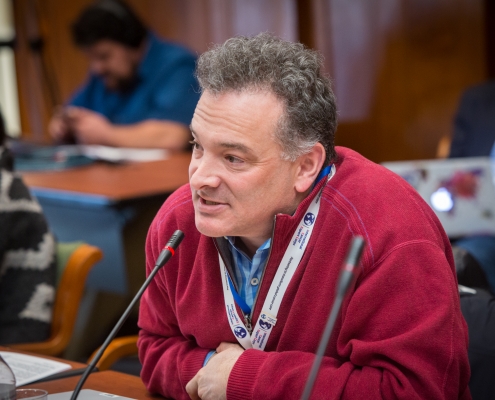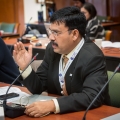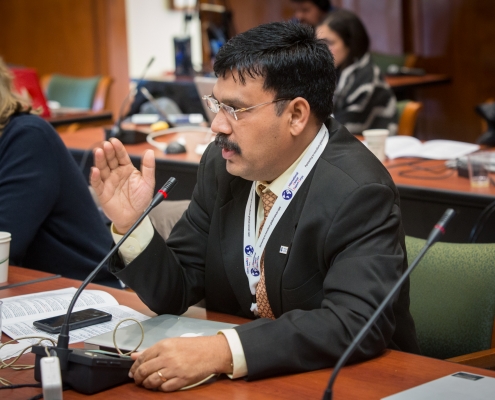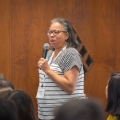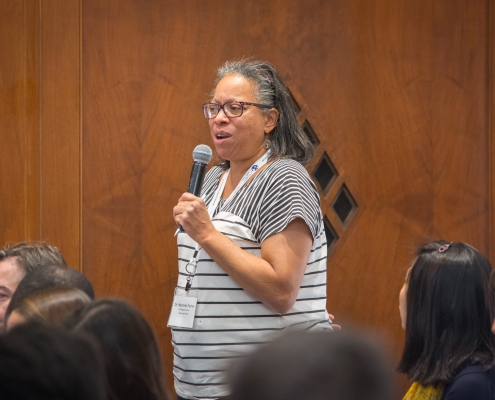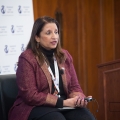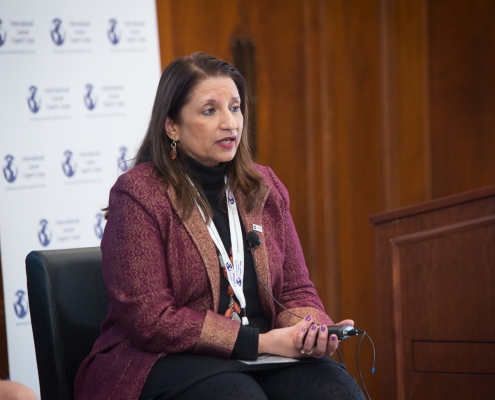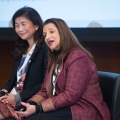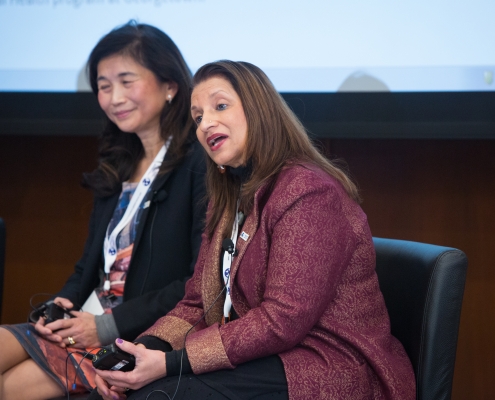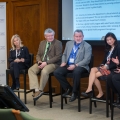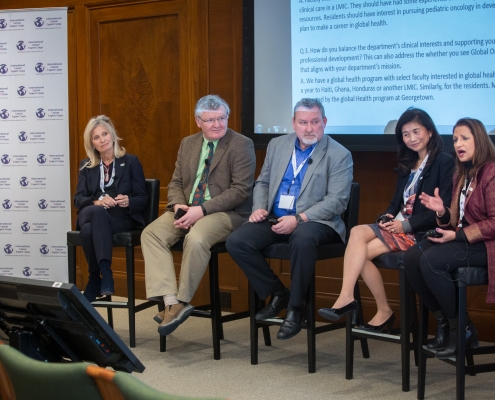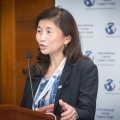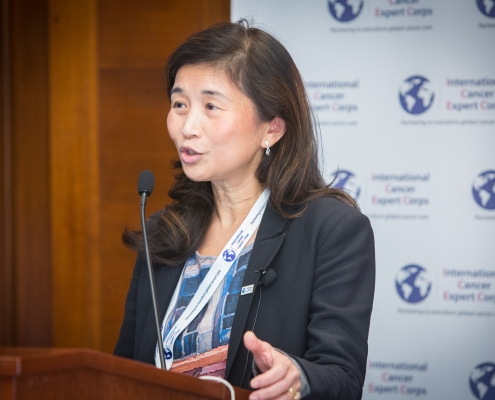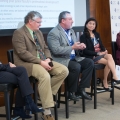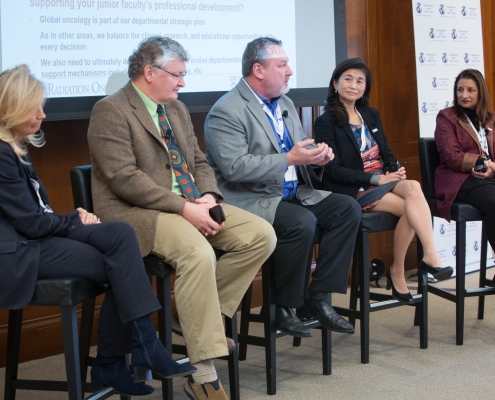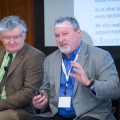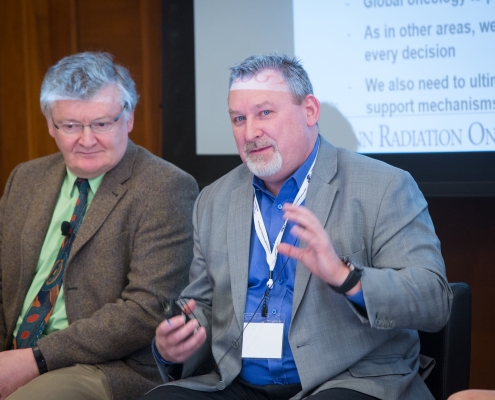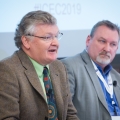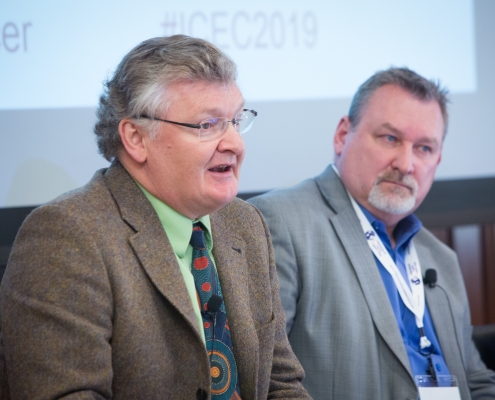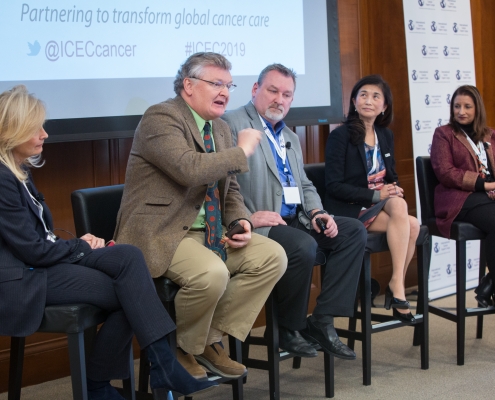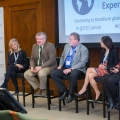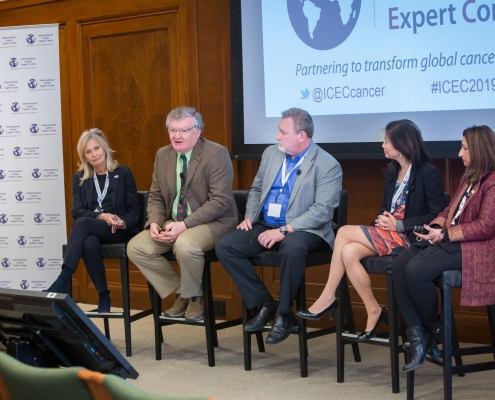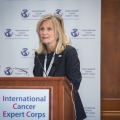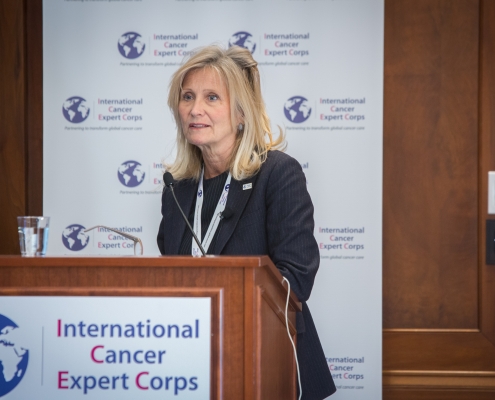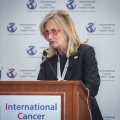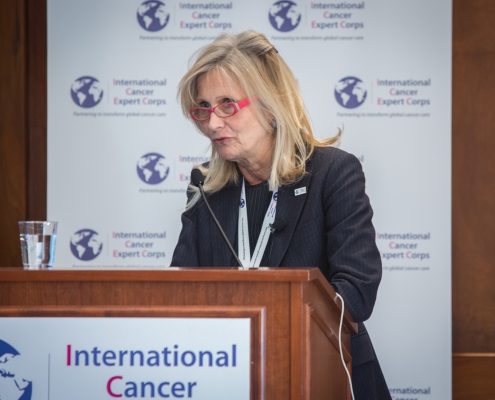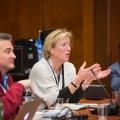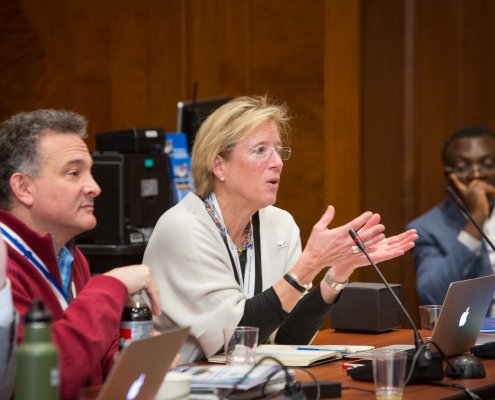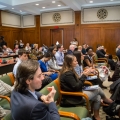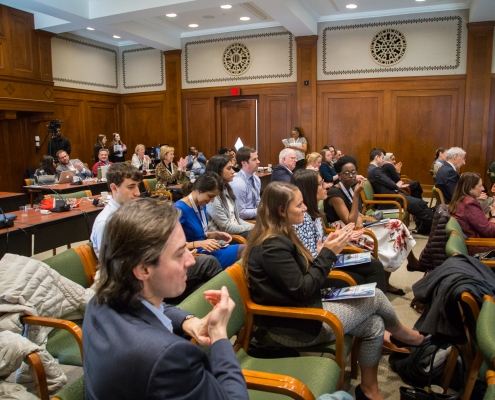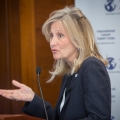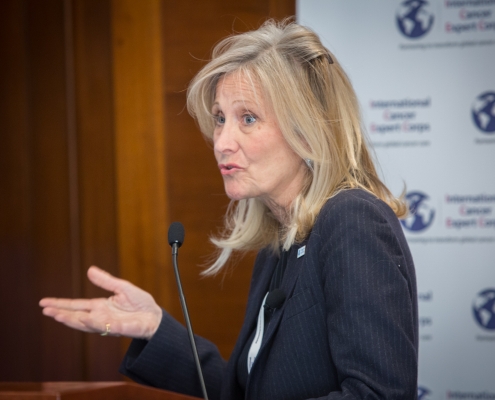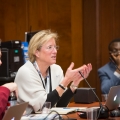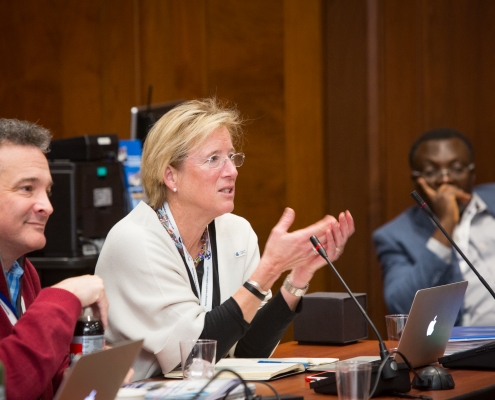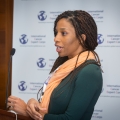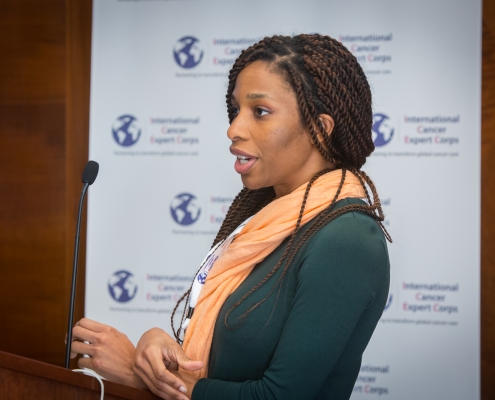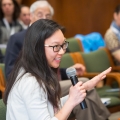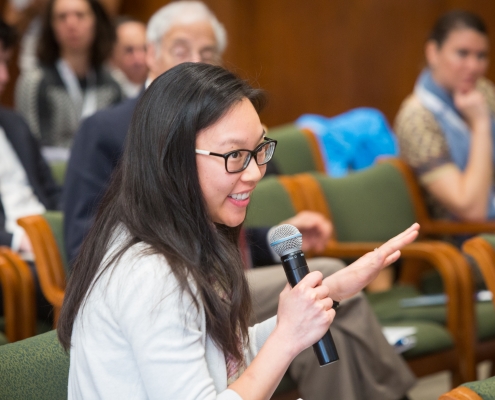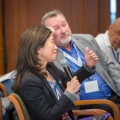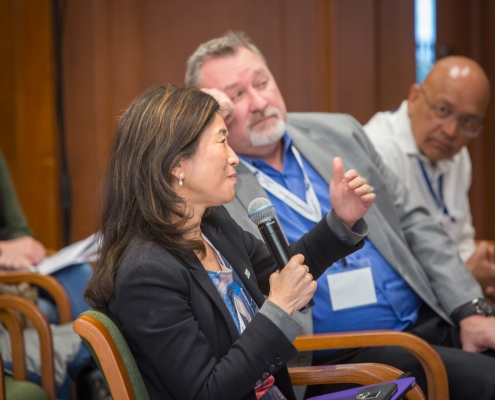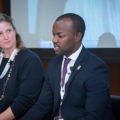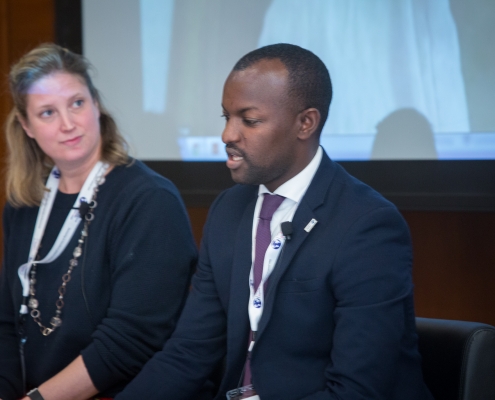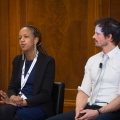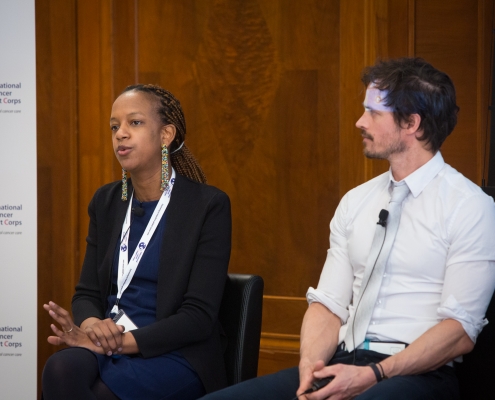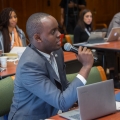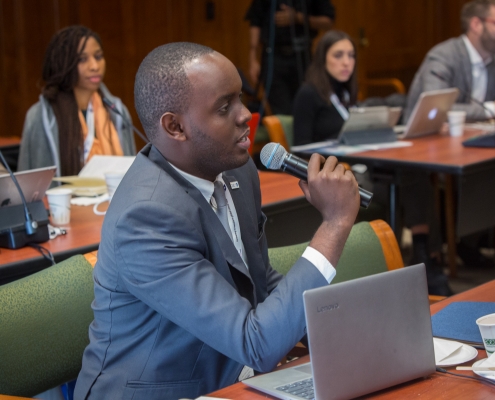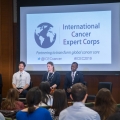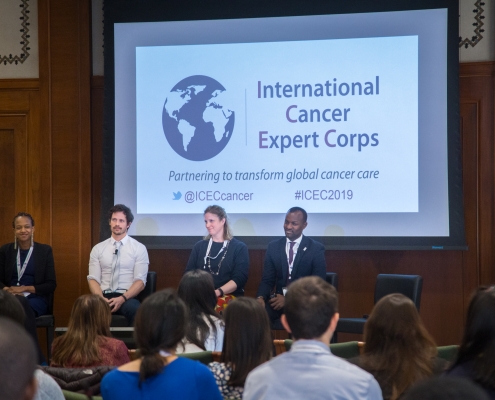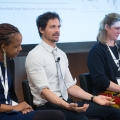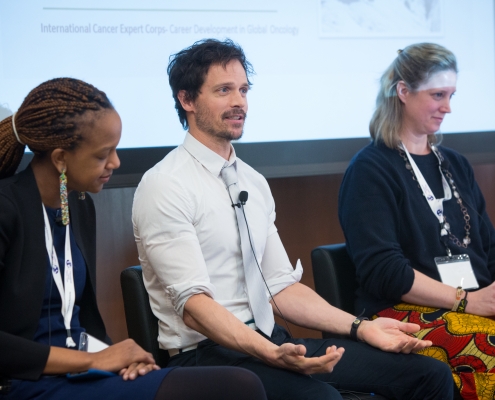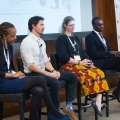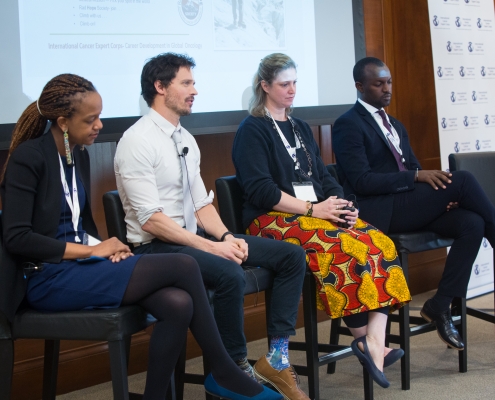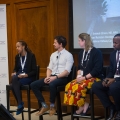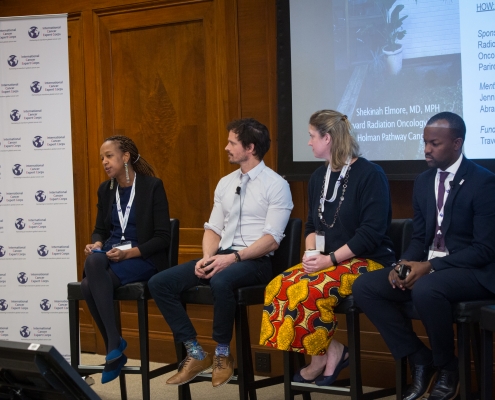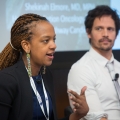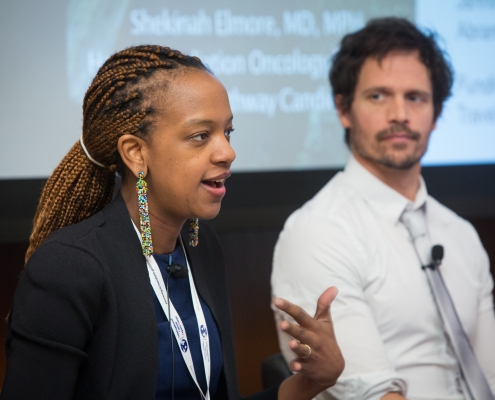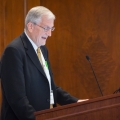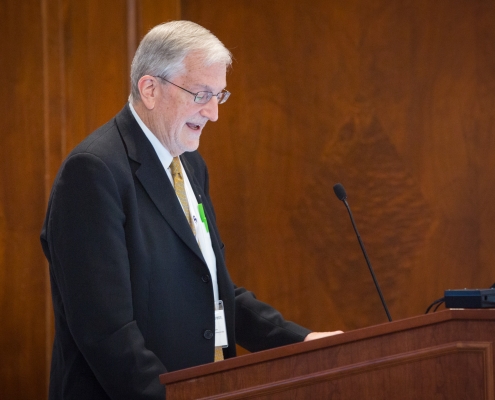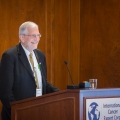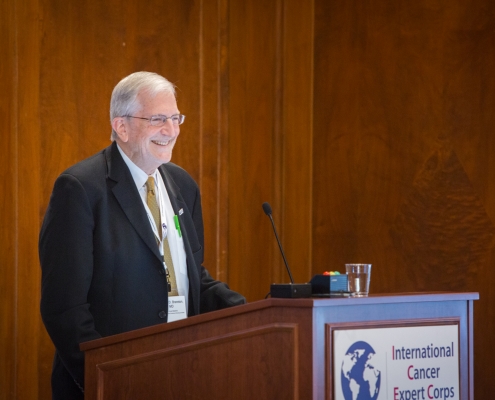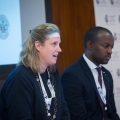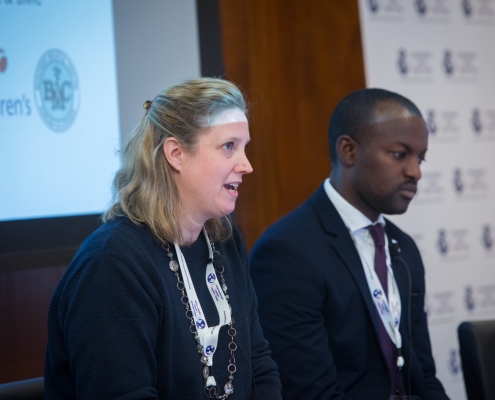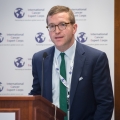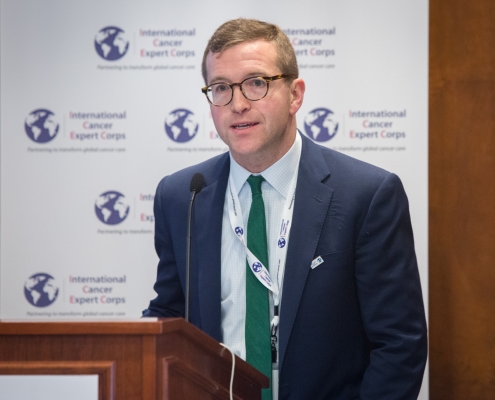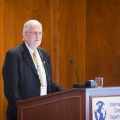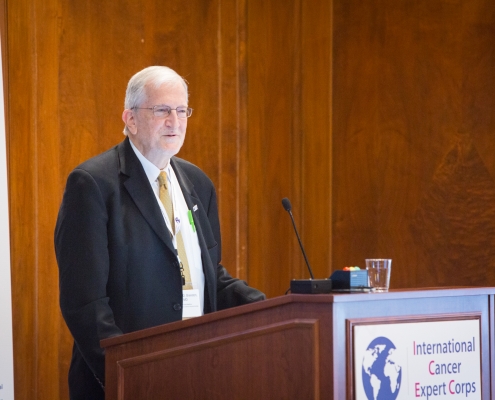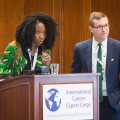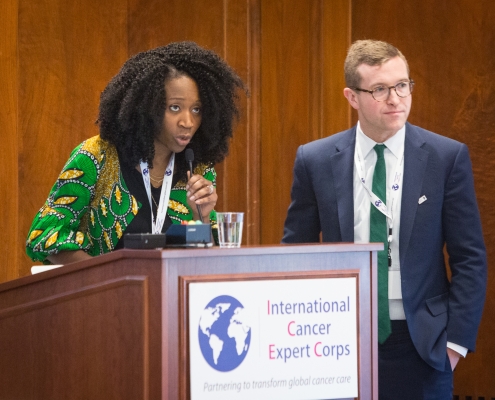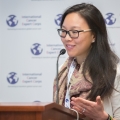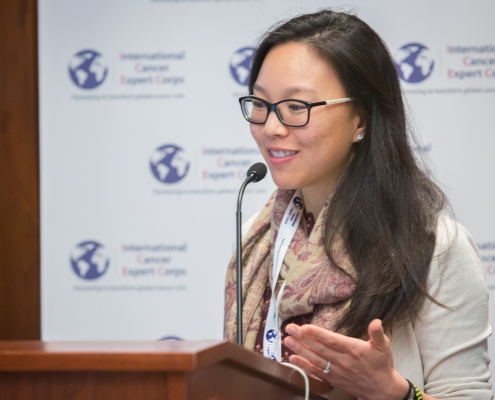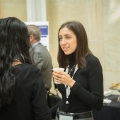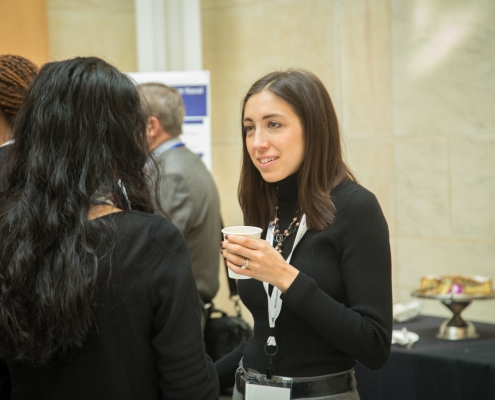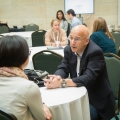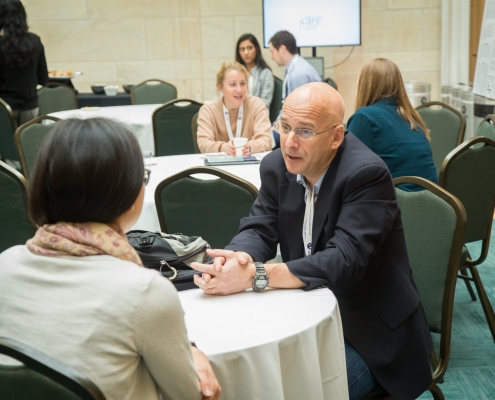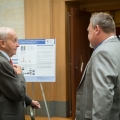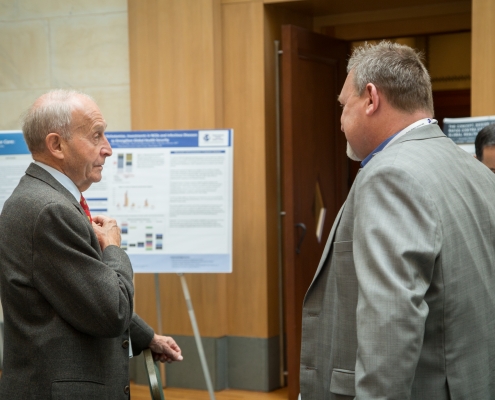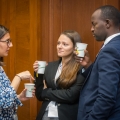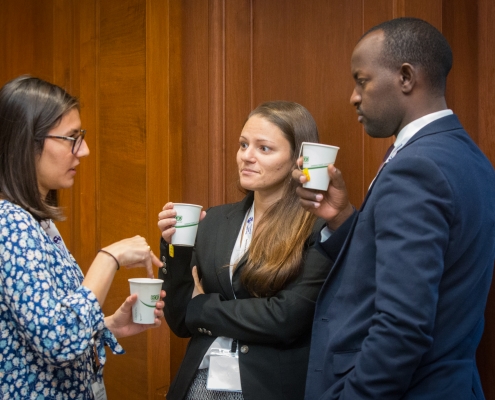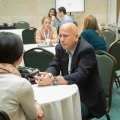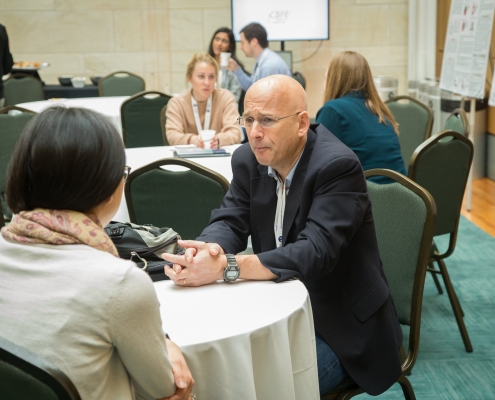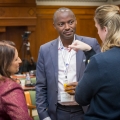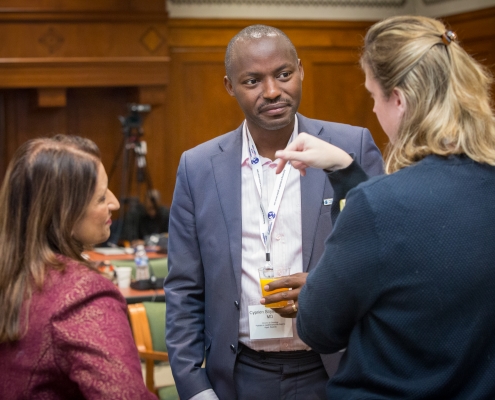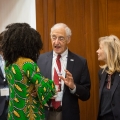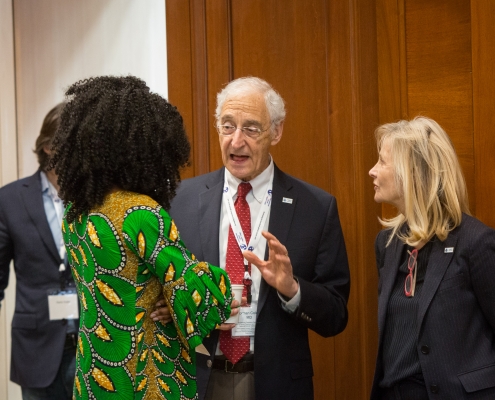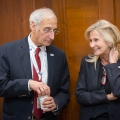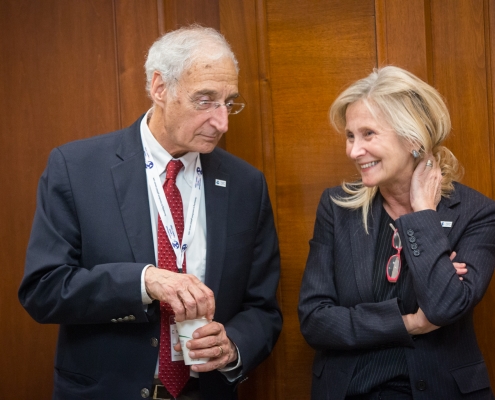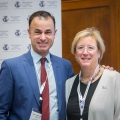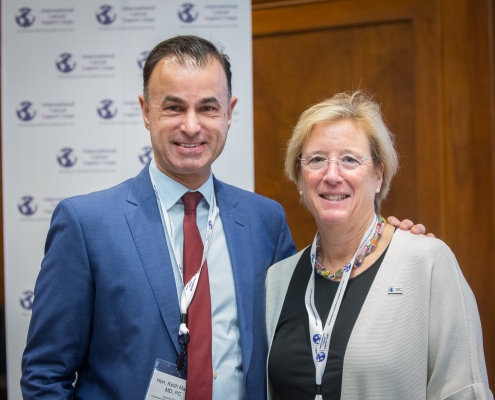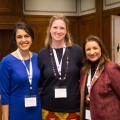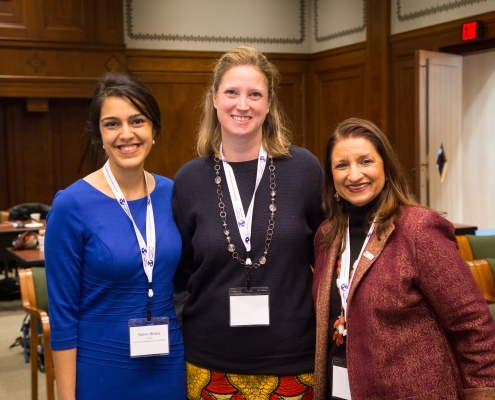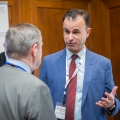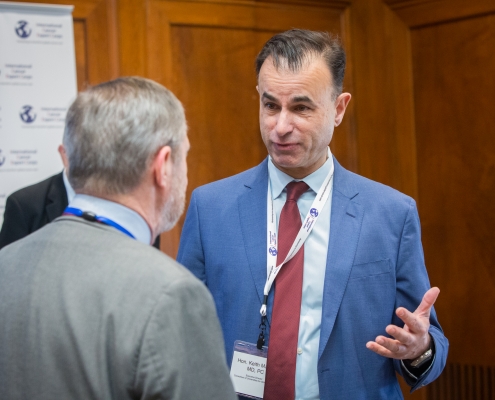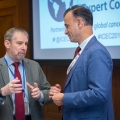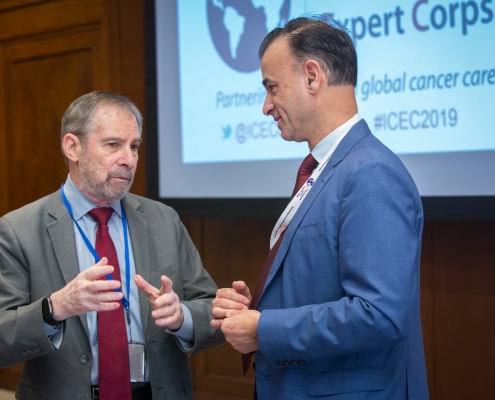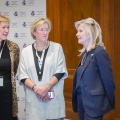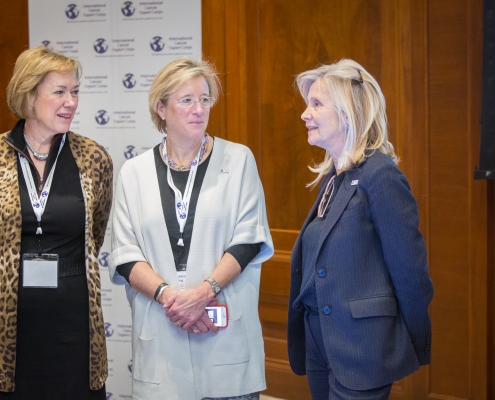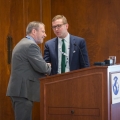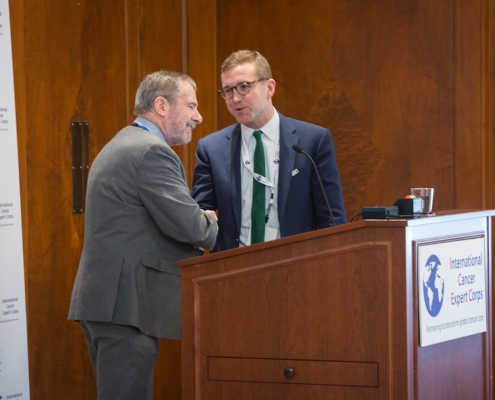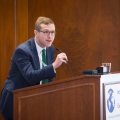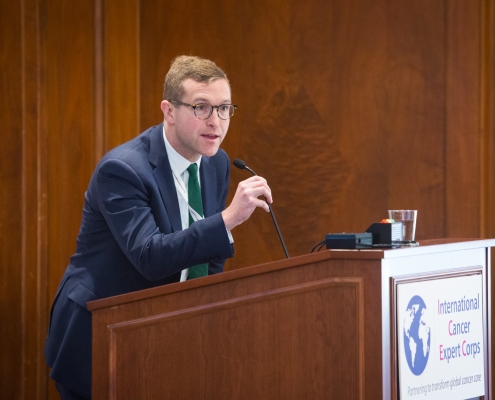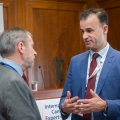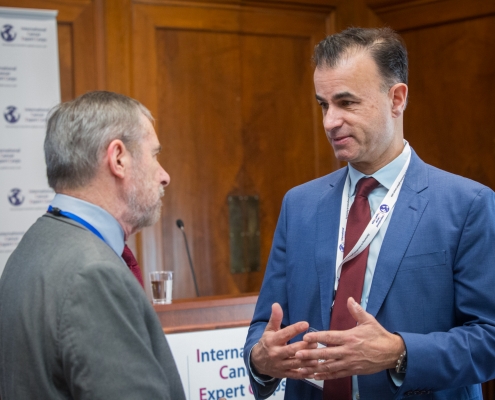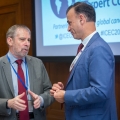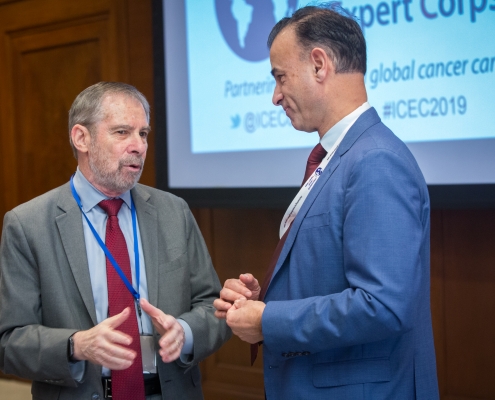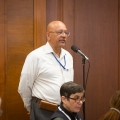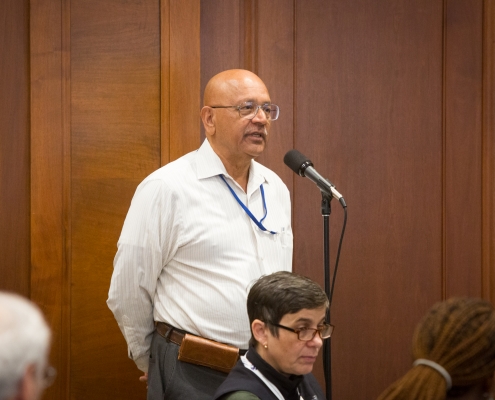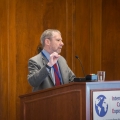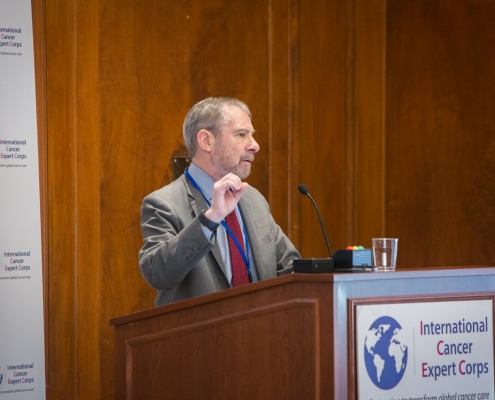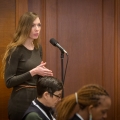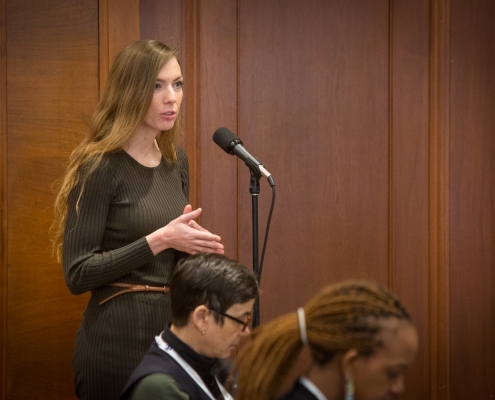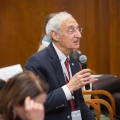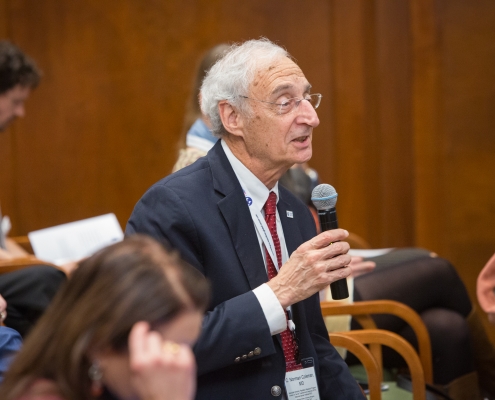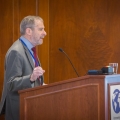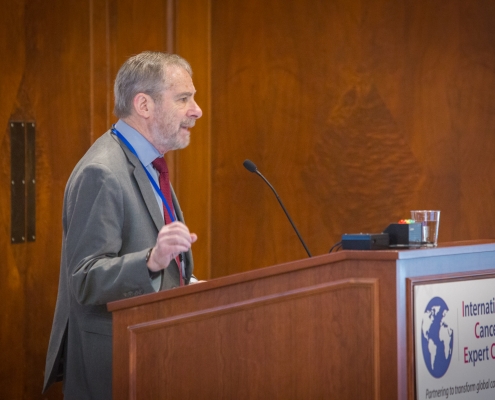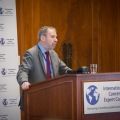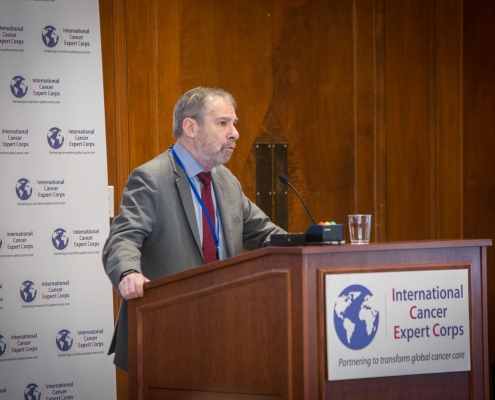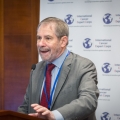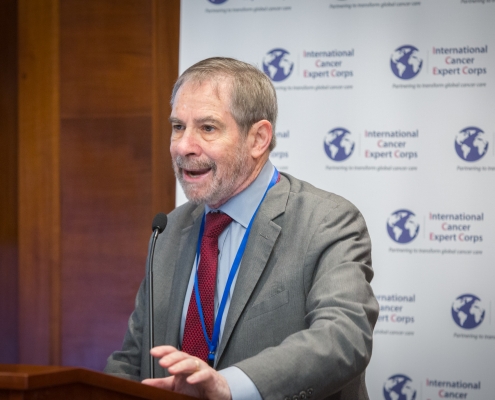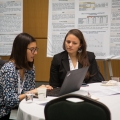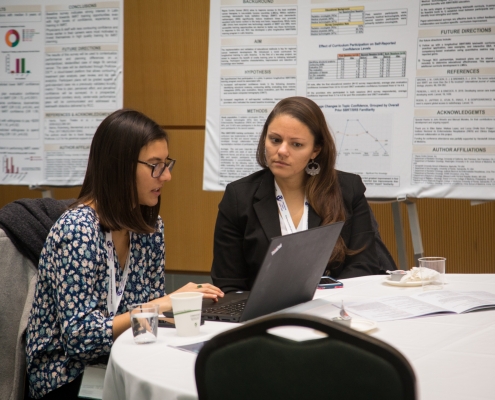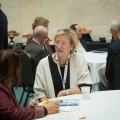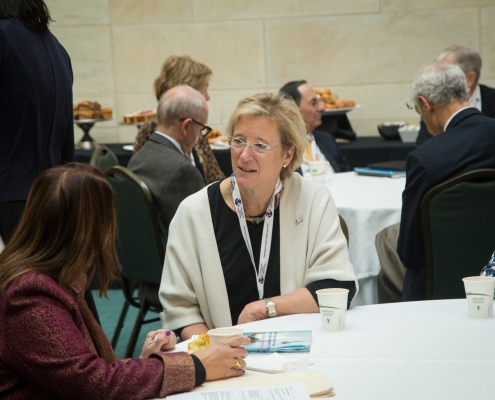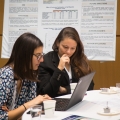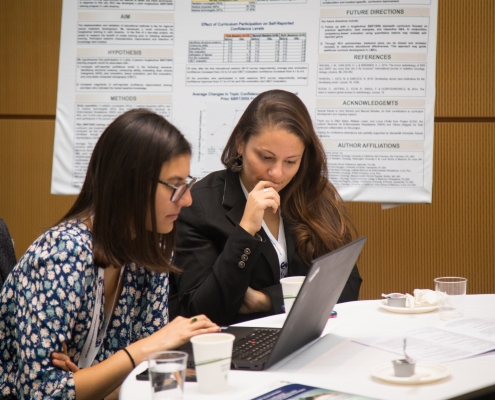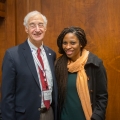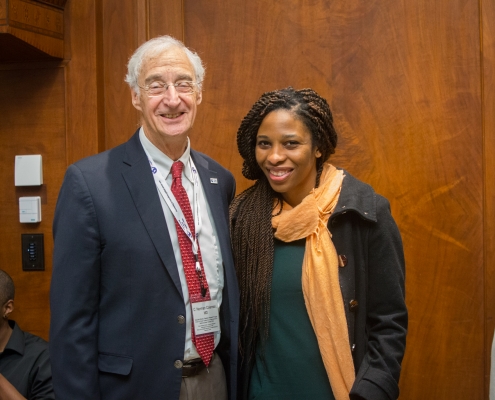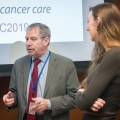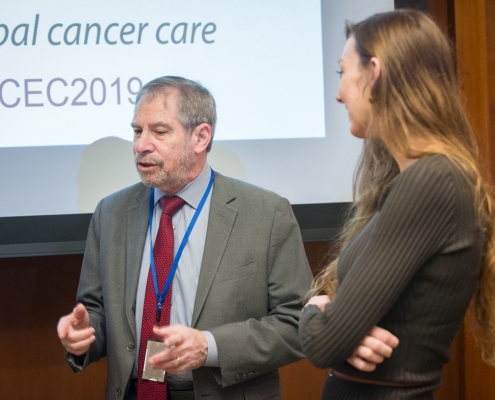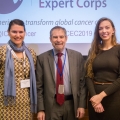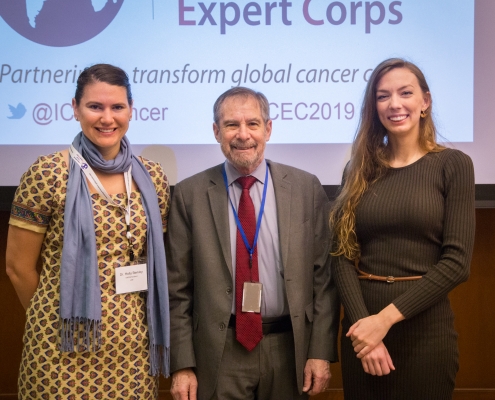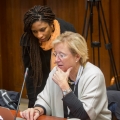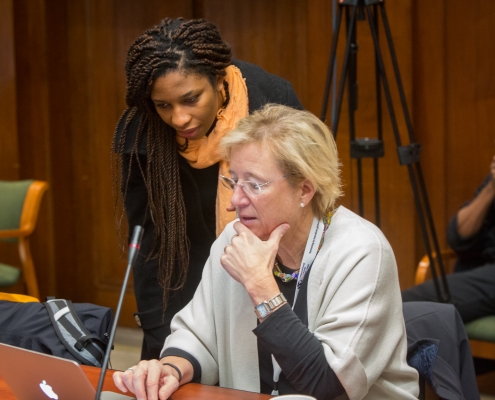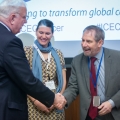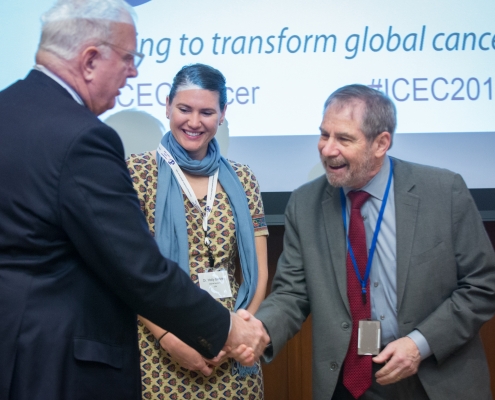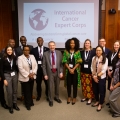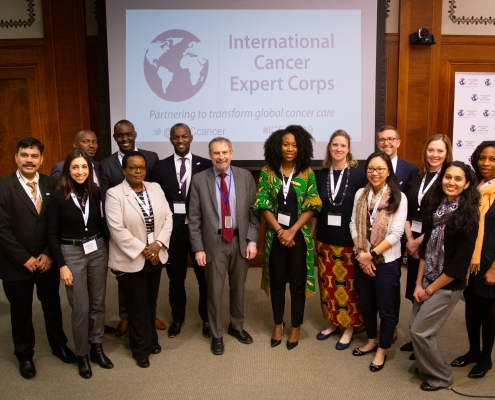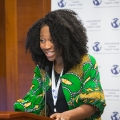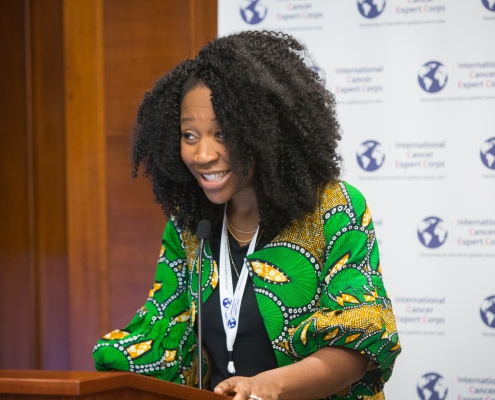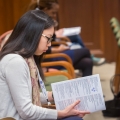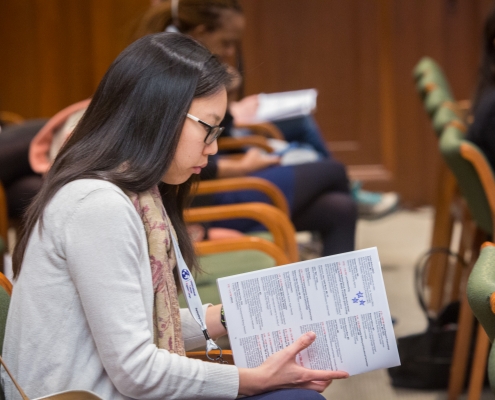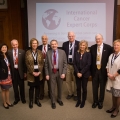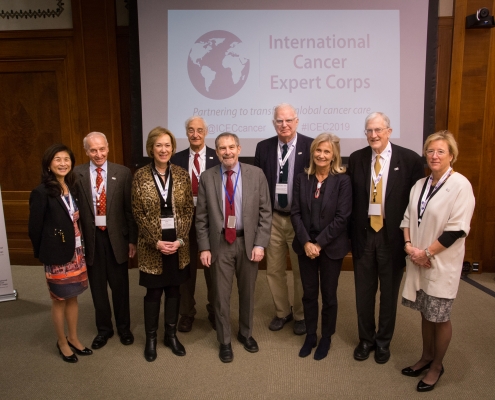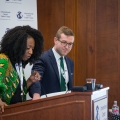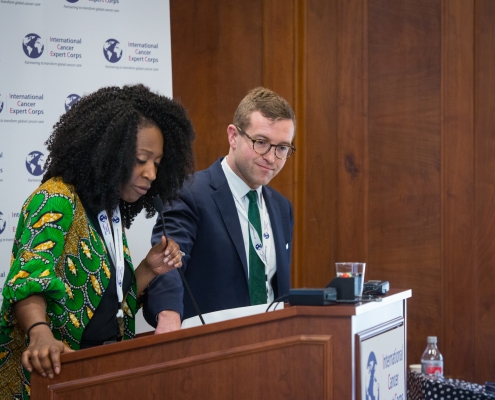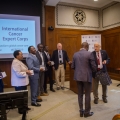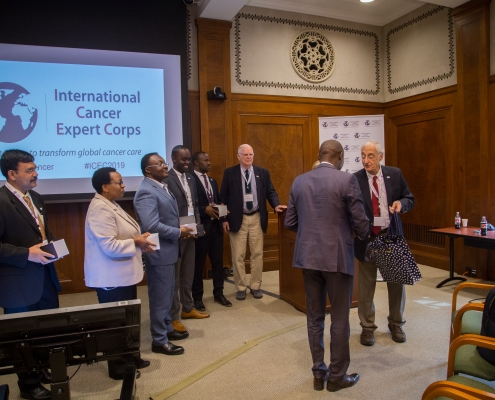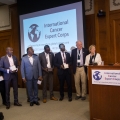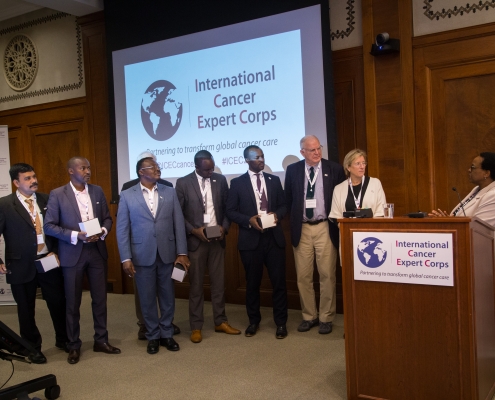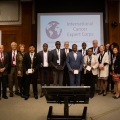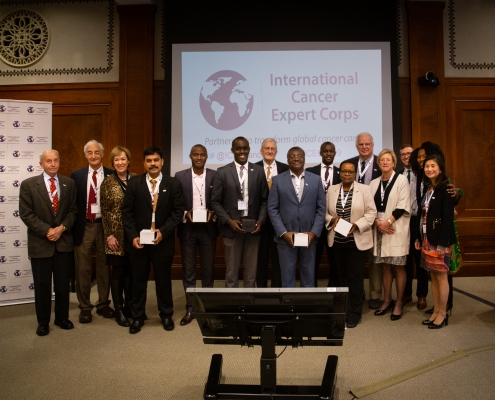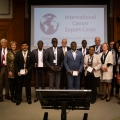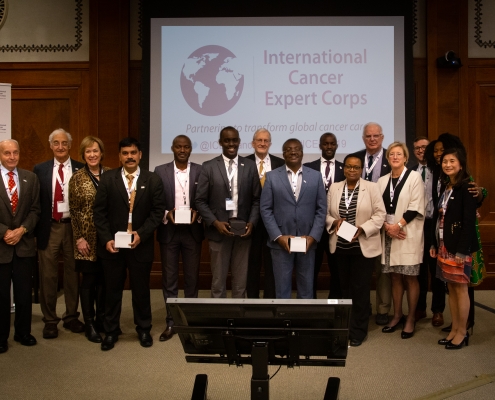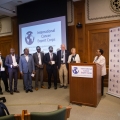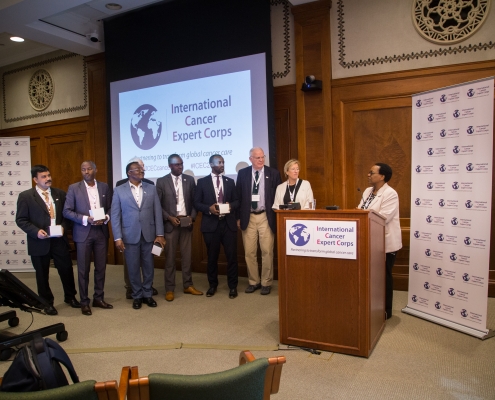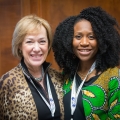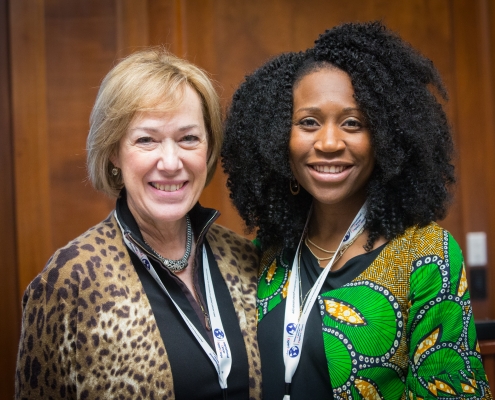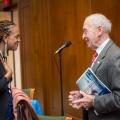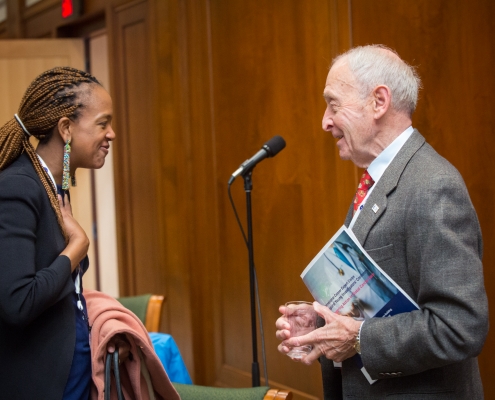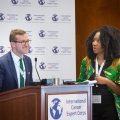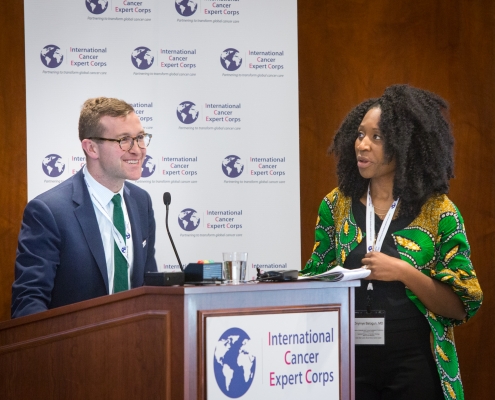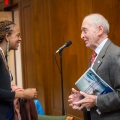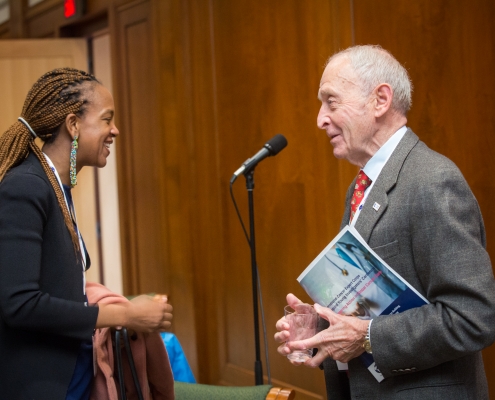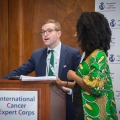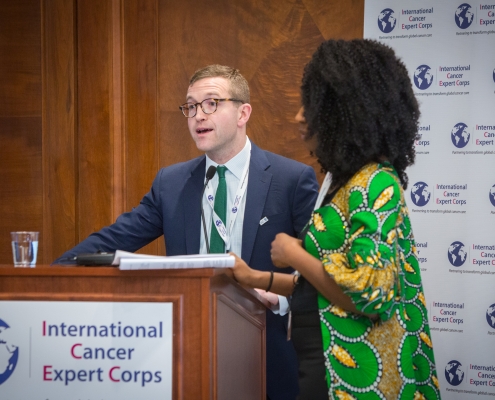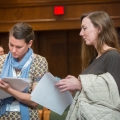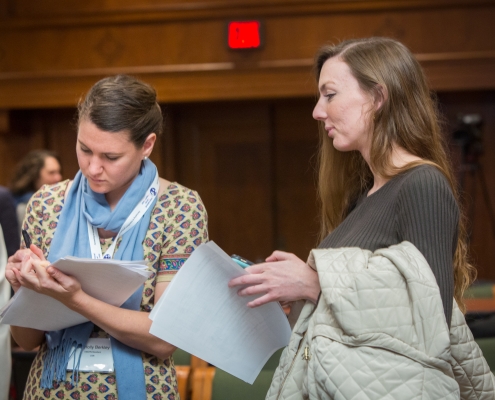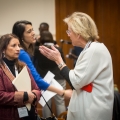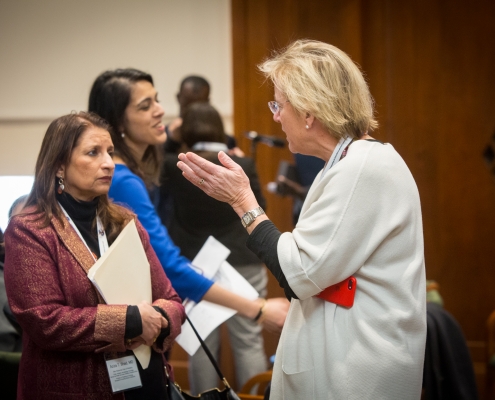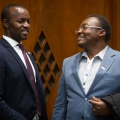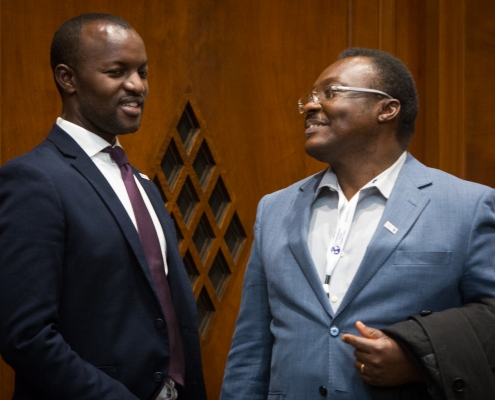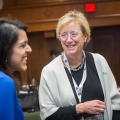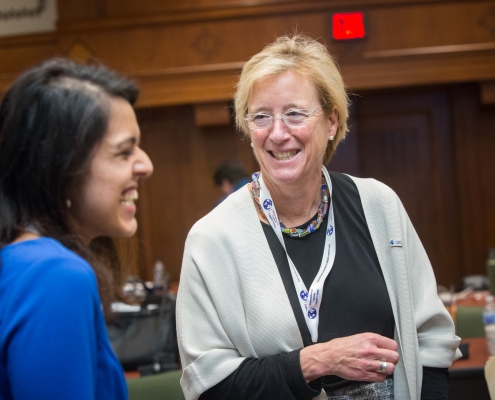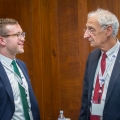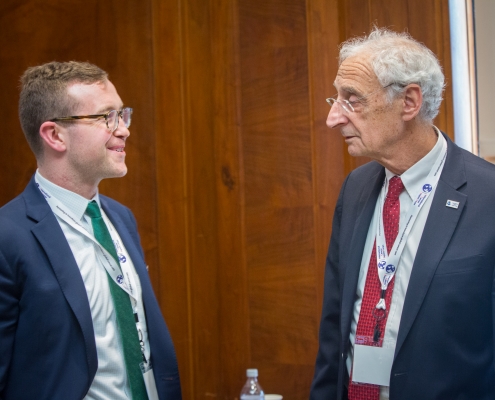ICEC Young Investigators’ Conference Pioneering Action in Global Cancer Care
The inaugural 2019 Young Investigators’ Conference, held February 14-15th, brought together young healthcare professionals and global oncology leaders to provide an opportunity for young cancer professionals from diverse regions to share and discuss the unique opportunities and challenges that they encounter at their home institutions and practices as well as abroad. The conference highlighted efforts related to mentorship, education and training, and building careers in global oncology while guiding systematic incremental improvements in cancer care delivery programs in low- and middle-income countries.
See the full agenda and presentations at the links below
Presentations + videos
Welcome/Introduction
Young Investigators’ Conference Co-Chairs:
Onyinye Balogun, MD, Weill Cornell Medicine
John (Mac) Longo, MD, Medical College of Wisconsin
Opening address “Why global oncology matters”
From the vantage point of a seasoned career filled with scientific accomplishment spanning multiple disciplines and technological advances, Dr. C. Norman Coleman shares a vision for the future of global oncology. He identifies equity as a unifying value of our profession and a driving force for improving cancer care worldwide. He outlines the growing global burden of cancer, several reasons why global oncology has been deemed a low priority effort, and addresses each in turn with thoughtful, evidence-based rebuttals. Dr. Coleman challenges young investigators to broaden their skill sets and seek creative collaborations to offer new solutions in improving global cancer care.
Speaker:
C. Norman Coleman, MD
Associate Director, Radiation Research Program
Division of Cancer Treatment and Diagnosis (DCTD)
National Cancer Institute (NCI)
Senior Medical Advisor, Chemical, Biological, Radiological, and Nuclear Team
Office of the Assistant Secretary for Preparedness and Response, DHHS
Why is Global Oncology Important? Local Global Oncology - Addressing the needs of the underserved locally
Acknowledging the care disparities that exist within high income countries, this panel introduced the concept of global health as the study of issues affecting health that transcends national boundaries. Recent investigations have helped to uncover the significant impact of colonialism as a broad social determinant of the health and well-being of indigenous people of North America, including Canada and the US. Various other structural determinants of health such as geographical displacement, resource appropriation, cultural assimilation, historical trauma and historical oppression contribute to the complexity of care disparities that exist in the world. Research aimed at understanding how structural and social determinants of health affect cancer-related outcomes is important, leading to the need for multi-level, multi-institutional and multi-jurisdictional collaboration in order to find and implement solutions to care disparities.
Moderator: Tracy Sherertz, MD
Kaiser, Capitol Hill, Washington
Jean-Marc Bourque, MD
Institute of Cancer Policy
Kings Health Partners Integrated Cancer Centre
Kings College London
The Ottawa Hospital Cancer Centre, University of Ottawa
Ashleigh Guadagnolo, MD, MPH
Professor, Radiation Oncology and Health Services Research
Section Chief of Sarcoma/Melanoma Radiation Oncology
The University of Texas MD Anderson Cancer Center
Global Oncology Policy Perspectives
Efforts to improve global cancer care depend heavily on the concerted leadership of national and international policy makers. In this session, invited speakers representing non-governmental organizations, professional societies such as the European Society for Radiotherapy and Oncology and African Organization for Research and Training in Cancer, the World Health Organization, and the International Atomic Energy Agency provide insight into their ongoing policy work. Speakers share their unique journey integrating policy work into their medical practice and outline future career opportunities for trainees and young faculty.
Moderator: Danielle Rodin, MD, MPH, FRCPC
University of Toronto
Non-governmental organizations
Patrick Loehrer, MD
Indiana University Distinguished Professor
Associate Dean for Cancer Research, IU School of Medicine
Director, Indiana University Melvin and Bren Simon Cancer Center
HH Gregg Professor of Oncology, IU School of Medicine
Professor of Medicine, IU School of Medicine
Co-founder, Academic Model Providing Access to Healthcare (AMPATH) Oncology Institute
Professional societies
Yolande Lievens, MD, PHD
Chair, Radiation Oncology Institute
Ghent University Hospital, Belgium
ESTRO – Past President
Ntokozo Ndlovu, MD
Radiation Oncologist and Clinical Epidemiologist University of Zimbabwe College of Health Sciences
Harare, Zimbabwe
AORTIC Education Committee
Joel Yarney, MD
Consultant Oncologist and Director National Centre for Radiotherapy Oncology and Nuclear Medicine
Korle Bu Teaching Hospital
Adjunct lecturer School of Medicine and Dentistry University of Ghana
United Nations/WHO
André Ilbawi, MD
Fellow, Complex Surgical Oncology
M.D. Anderson Cancer Center, Houston, TX
Technical Officer, WHO Department for Management of Noncommunicable Diseases, Disability, Violence and Injury Prevention (NVI)
Kirsten Hopkins, MD
Division of Human Health
International Atomic Energy Agency
Vienna, Austria
Building Ethical, Mutually Beneficial Global Oncology Partnerships: Models of academic global oncology career paths
Recognizing that we are eager for global collaboration, this panel sought to examine these partnerships from diverse perspectives. The panel began with a reminder of the historical inequities that continue to impact health status, especially in low and middle income countries, and introduced an ethical framework to guide meaningful global oncology work. The panel highlighted sustained partnerships that have enhanced oncologic research, education, and clinical capacity while also calling attention to challenges, setbacks, and failures. Importantly, the panel identified ways to advance mutually beneficial partnerships, rooted in transparency, humility, and a commitment to improving access to cancer care worldwide.
Moderators: Hon. Keith Martin, MD, PC
Executive Director
Consortium of Universities for Global Health
John “Mac” Longo, MD
Medical College of Wisconsin
Onyi Balogun, MD
Weill Cornell Medicine
General Aspects of Relationships/Partnerships: The importance of building ethical partnerships
Rebecca (Becky) DeBoer, MD, MA
Global Health Hospital Medicine Fellow
University of Chicago
Cyprien Shyirambere, MD
Director of Oncology
Partners In Health/Inshuti Mu Buzima
Kigali, Rwanda
Basic Science Partnerships
Lisa A. Newman, MD, MPH, FACS, FASCO
Weill Cornell Medicine-New York Presbyterian Hospital Network
Chief, Division of Breast Surgery and Director, Interdisciplinary Breast Disease Program
Founding Medical Director, International Center for the Study of Breast Cancer Subtypes
Adjunct Professor, M.D. Anderson Cancer Center
Adjunct Professor, University of Michigan
Patrick Loehrer, MD
Indiana University Distinguished Professor
Associate Dean for Cancer Research, IU School of Medicine
Director, Indiana University Melvin and Bren Simon Cancer Center
HH Gregg Professor of Oncology, IU School of Medicine
Professor of Medicine, IU School of Medicine
Co-founder, Academic Model Providing Access to Healthcare (AMPATH) Oncology Institute
Melissa Boneta Davis, PhD
Assistant Professor of Cell and Developmental Biology Research in Surgery
Weill Cornell Medicine
Clinical Research Partnerships
Peter Kingham, MD, FACS
Director of Global Cancer Disparity Initiatives
Memorial Sloan Kettering Cancer Center
Ntokozo Ndlovu, MD
Radiation Oncologist and Clinical Epidemiologist University of Zimbabwe College of Health Sciences
Harare, Zimbabwe
AORTIC Education Committee
Capacity Building and Educational Partnerships
Achille Manirakiza, MD
Clinical & Radiation Oncologist
Department of Radiation Oncology
Rwanda Military Hospital
Thomas Samuel Ram, MD
Christian Medical College
Vellore, India
Joel Yarney, MD
Consultant Oncologist and Director National Centre for Radiotherapy Oncology and Nuclear Medicine
Korle Bu Teaching Hospital
Adjunct lecturer School of Medicine and Dentistry University of Ghana
Keynote Address
Douglas R. Lowy, MD
Deputy Director
National Cancer Institute (NCI)
National Institutes of Health (NIH)
Re-cap of first day
Onyinye Balogun, MD & John (Mac) Longo, MD
Selected Poster Presentations
The International Cancer Expert Corps invited abstracts on original research, innovative projects, and novel programs related to global oncology to be considered for presentation at the conference. Authors of the top 3 Abstracts selected by the Abstract Review Committee presented their posters orally, on Thursday, February 14, 2019, at 5:00 p.m. All other posters were displayed for the duration of the conference and were attended by authors at determined times for review and discussion with conference attendees. These can be viewed in the gallery below.
Poster 1 Presentation
Comparison of Epidemiological Trends in Presentation of Breast Cancer amount Botswana, South Africa, and the United Sates.
Presenter: Rohini Bhatia
University of Rochester
Authors: S. Sinha, R. Bhatia, M. Narasimamurthy, S. Rayne, S. Grover
Poster 2 Presentation
Citizen Scientists Monitoring Project of Polycyclic Aromatic Hydrocarbon Concentrations in Bomet County, Kenya, a Region with High Incidence of Esophageal Squamous Cell Carcinoma
Presenter: Natalie R. Pritchett
Pre-doctoral Fellow, George Washington University
National Cancer Institute (NCI)
Authors: N.R. Pritchett, R.R. Jones, A. Etemadi, R. Parker, C.C. Abnet, S.M. Dawsey, M.M. Mwachiro
Poster 3 Presentation
Virtual Longitudinal Mentorship–a clinical and education research capacity building project for radiation oncology trainees
Presenter: Horia Vulpe
Princess Margaret Cancer Centre
Authors: H. Vulpe, A. Lam, R. Chu, Z. Kassam, J. Ringash, T. Panzarella, B. Cummings, T. Craig, S. Breen, V. Vanderpuye, J. Yarney, R. Wong
Career Development in Global Oncology:
Expectations, Opportunities and Solutions
In the absence of a defined career path, students, trainees, and junior clinicians face obstacles with integrating global oncology into their careers. This panel will identify the challenges young investigators experience, highlight successes of early career global oncology leaders, and provide senior clinicians’ and department chairs’ perspectives on successfully pursuing a career in global oncology.
Perspective of Young Investigators
This panel discussion with five young investigators examines the why, what and how one develops such a career. Although the backgrounds and careers of the five panelists are diverse there are common lessons from their presentations.
In each case an important encounter with a mentor or patient stimulated the interest in global oncology and without a clear pathway forward each panelist demonstrates remarkable perseverance in pursuing funding and the importance of communicating with family, friends, colleagues and chairmen to obtain the support necessary to do the work.
Moderator: Harmar D. Brereton, MD
Weill Cornell Medicine
Shekinah N. Elmore, MD, MPH
Resident
Harvard Radiation Oncology Program
Holman Pathway Candidate
Fidel Rubagumya, MD
Clinical Oncology
Ocean Road Cancer Institute
University of Health and Allied Sciences, Tanzania
Founder at Rwanda Children’s Cancer Relief
Surbhi Grover, MD, MPH
Assistant Professor of Radiation Oncology
Hospital of the University of Pennsylvania
Abramson Cancer Center
Botswana-UPENN partnership, Princess Marina Hospital, Gaborone, Botswana
Kristin Schroeder, MD MPH
Assistant Professor, Pediatric Hematology and Oncology,
Assistant Research Professor, Duke Global Health Institute
Bugando Medical Centre, Duke Global Cancer Program, Mwanza, Tanzania
Brandon Fisher, MD
Co-founder and past president of Radiating Hope
Gamma West Cancer Services
Salt Lake City, Utah
Perspective of Senior Mentors and Chairs/Directors
A diverse group of incredibly accomplished senior mentors shared thought provoking, success-geared ideas for young investigators interested in pursuing global oncology as a career. The panelists started by affirming that global oncology is an important career path. Even though it does not conform to the traditionally acceptable academic norms, the narrative is slowly changing towards its recognition as a true academic pursuit. The panelists stressed that while new metrics for global oncology are being defined, it is important to align ones’ efforts to the current academic rules by competing for grants and publications. Additionally, global oncology pursuits should be presented in ways that highlight the benefits of its non-traditional return on investment. They also discussed the importance of sustaining global oncology careers by maintaining relations both locally and globally, by being a good steward and by not burdening colleagues while you are traveling for global academic pursuits. Young investigators were tasked to continue to innovate, to work towards making an impact and to pursue their passion while balancing the demands of their current practice.
Moderator: Chika Nwachukwu, MD, PhD
Stanford University
Silvia Chiara Formenti, MD
Chair of Radiation Oncology at Weill Cornell Medical College
Radiation Oncologist-in-Chief at New York-Presbyterian/Weill Cornell Medical Center
Sandra and Edward Meyer Professor of Cancer Research
Rebecca Wong, MBChB, FRCPC, MSc
Vice Chair, Education, Department of Radiation Oncology, University of Toronto
Radiation Medicine Program, University Health Network, Princess Margaret Cancer Centre
James M. Metz, MD
Professor and Chair
Radiation Oncology
Executive Director, OncoLink
Hospital of the University of Pennsylvania
Perelman Center for Advanced Medicine
Satish Gopal, MD, MPH
Associate Professor of Medicine, University of North Carolina
Associate Professor of Epidemiology, Gillings School of Global Public Health
Cancer Program Director, UNC Project-Malawi
James Cleary, MD, PhD
Professor of Medicine
Indiana University School of Medicine, Indianapolis, IN.
Walther Senior Chair and Director of Supportive Oncology
IU Simon Cancer Center
Aziza T. Shad, MD
Ellen Wasserman Chair of Pediatrics
Chief, Pediatric Hematology Oncology
Herman and Walter Samuelson Children’s Hospital at Sinai
Professor of Pediatrics & Oncology
Georgetown University School of Medicine
Career Development Breakout Sessions
Mentorship: Choosing the Right Mentor and Being a Mentor
Onyi Balogun, MD and Harmar Brereton, MD
Being an Effective Global Oncology Partner
John (Mac) Longo, MD and Thomas Ram, MD
Global Oncology and Academic Promotion
Kristin Schroeder, MD
Work-Life Balance
Melody Xu, MD and Tracy Sherertz, MD
Closing Remarks and Next Steps
Leadership Team
Sponsors
Photos
Contact International Cancer Expert Corps
info@iceccancer.org

